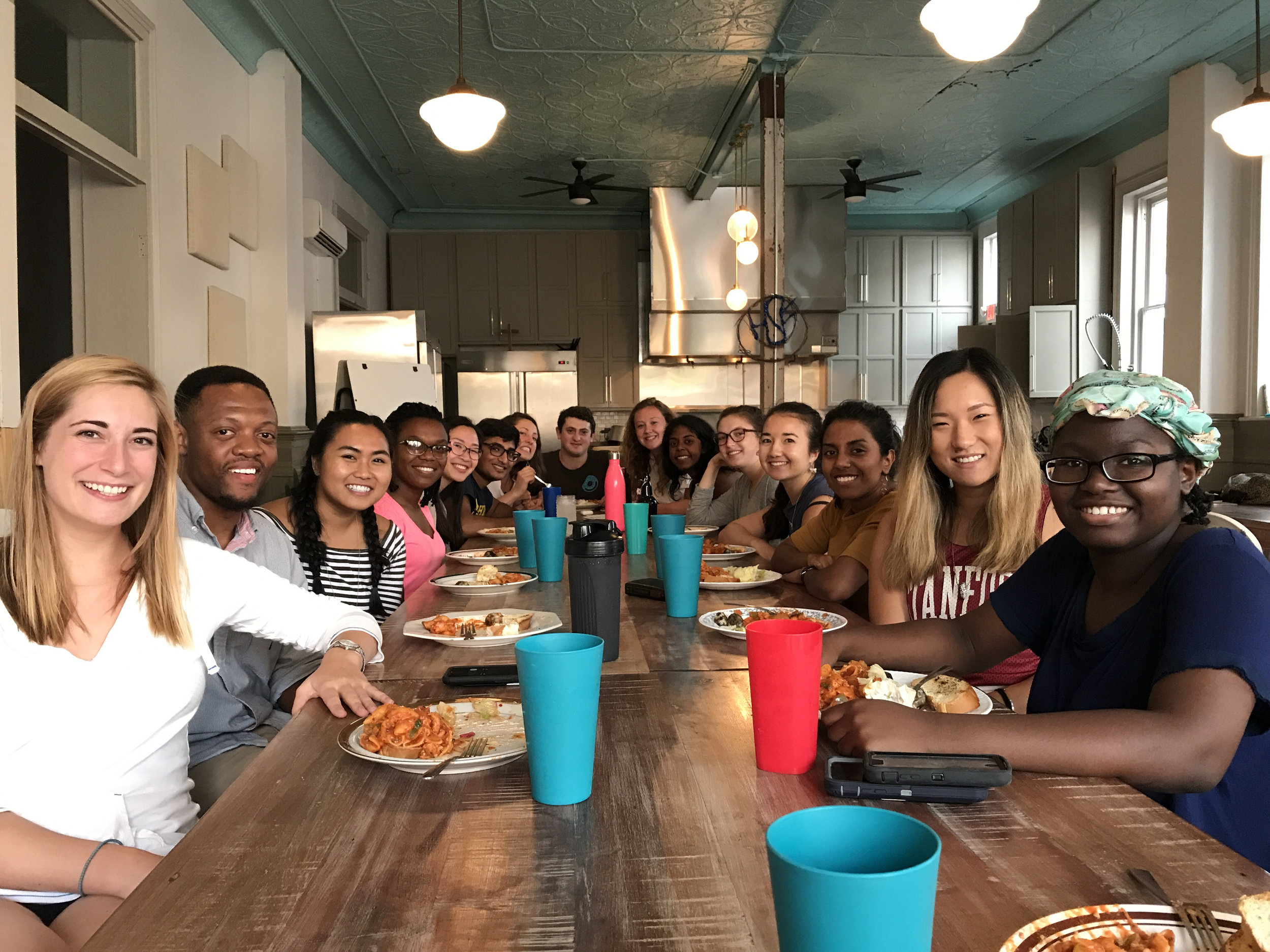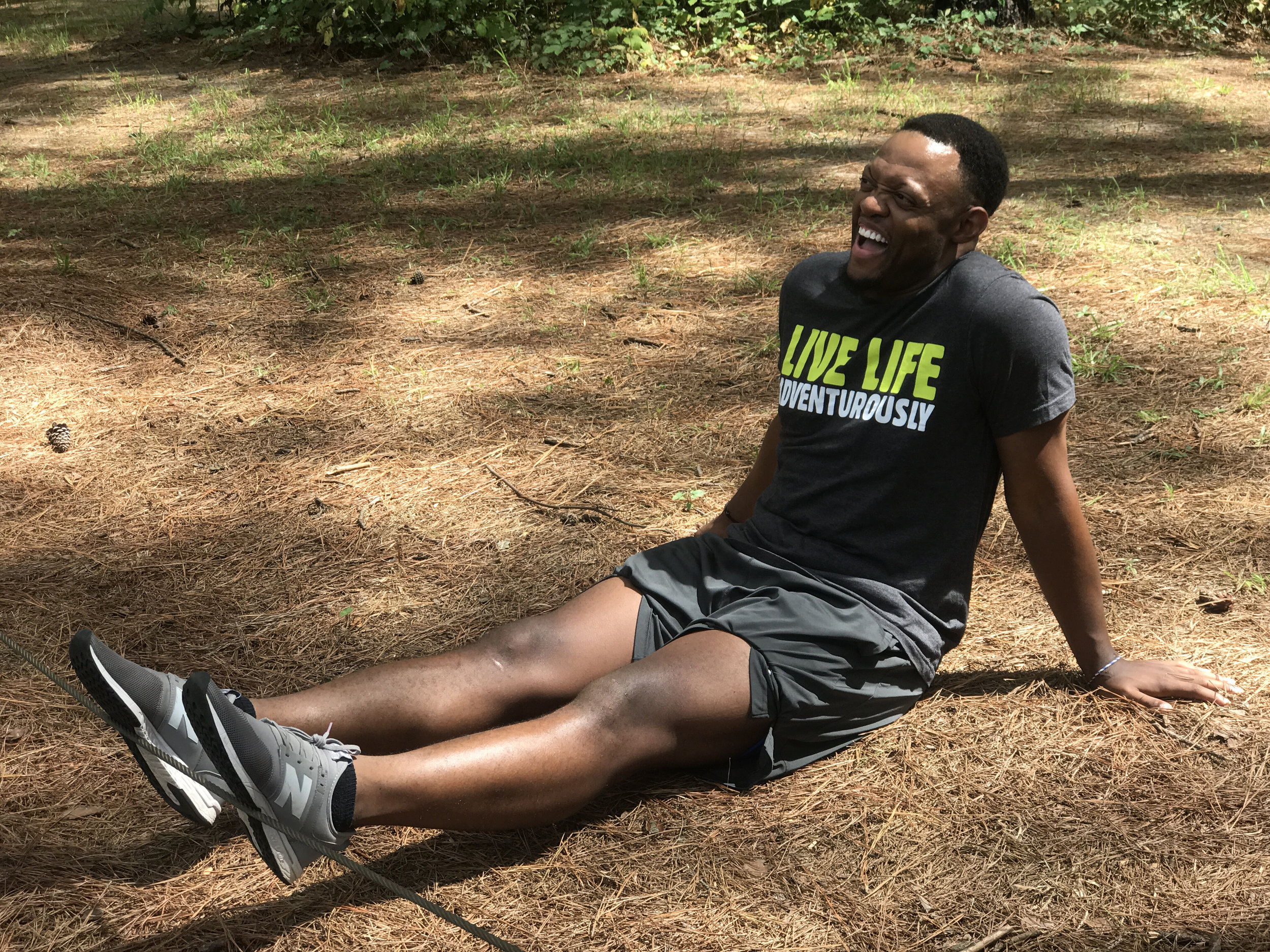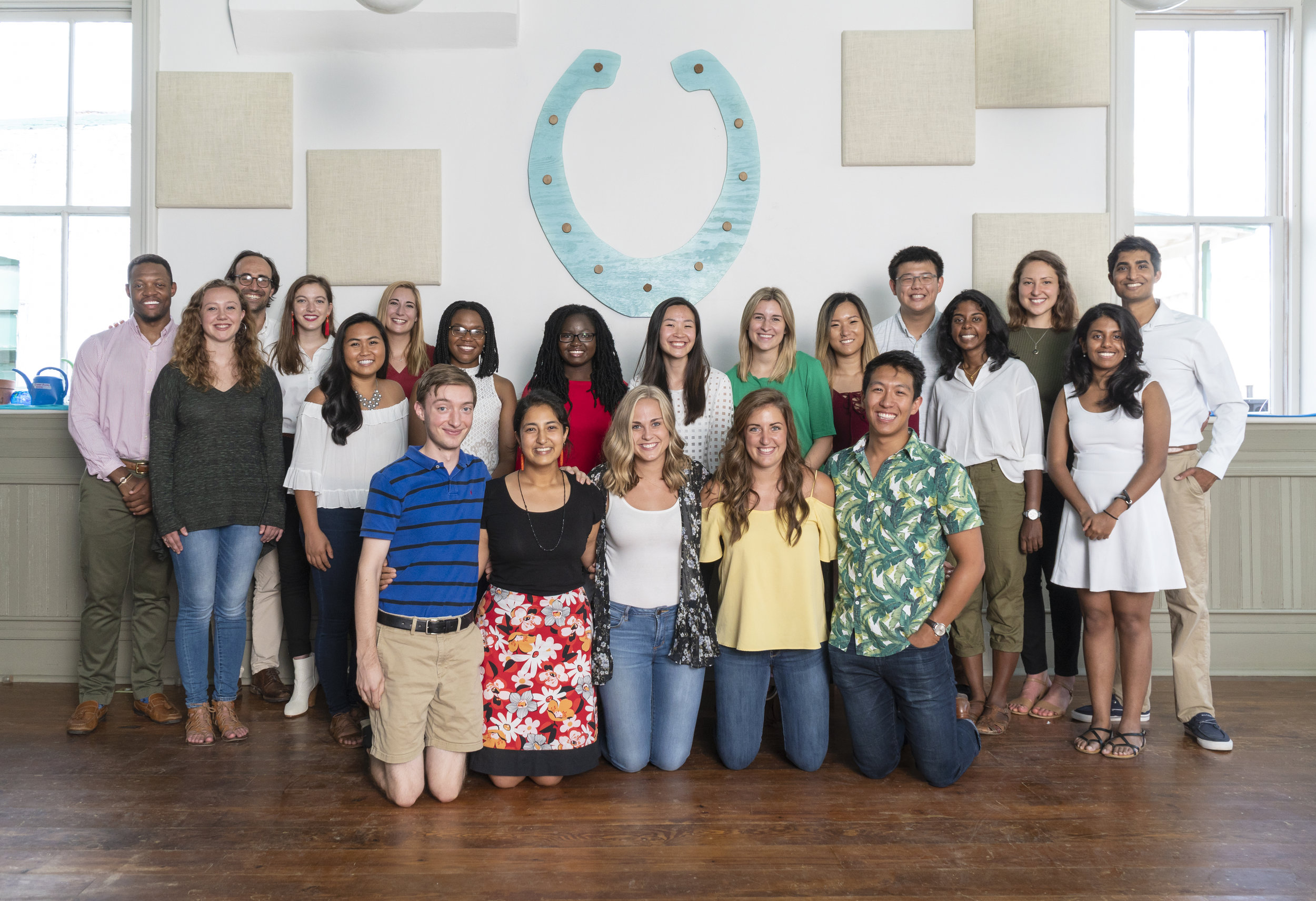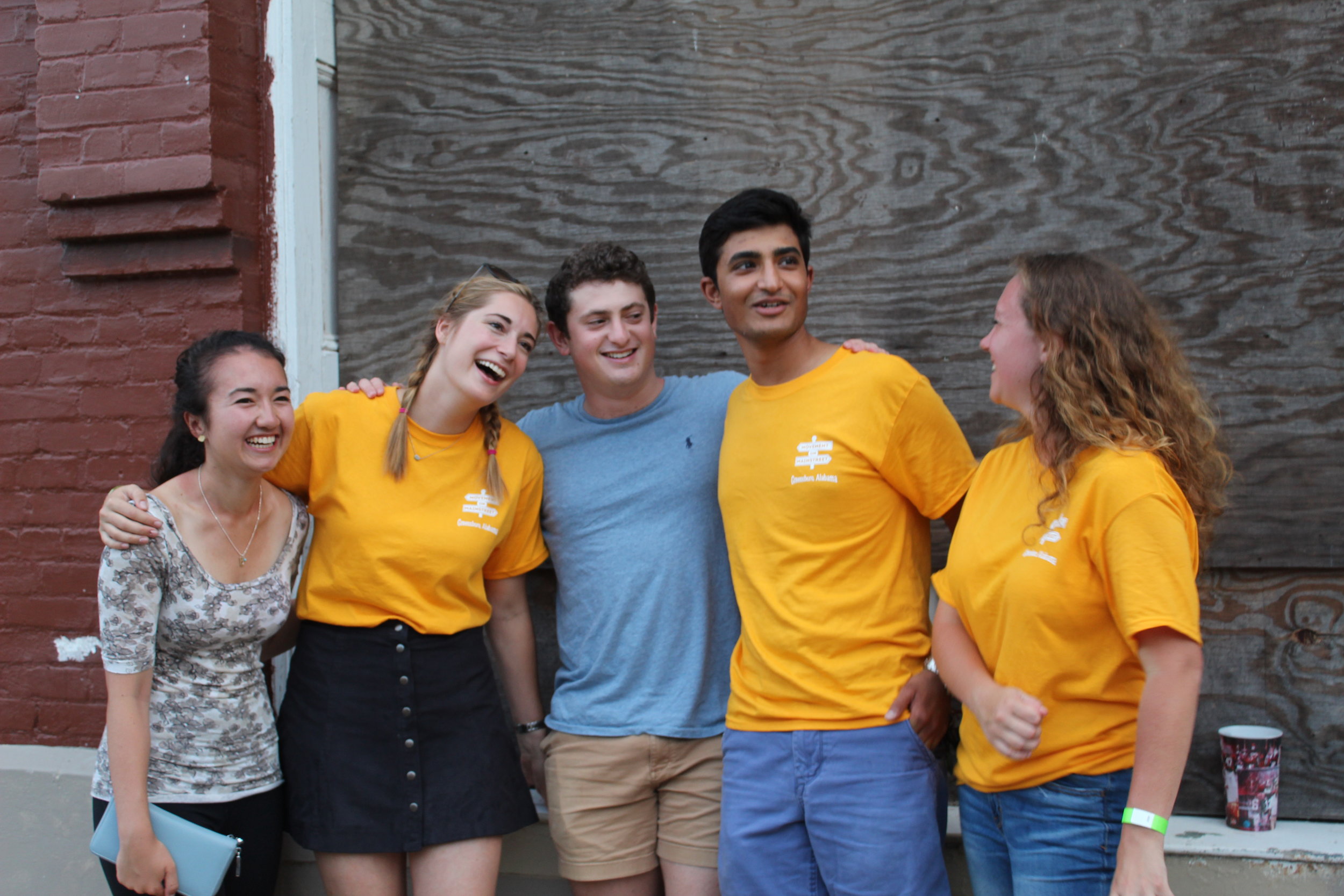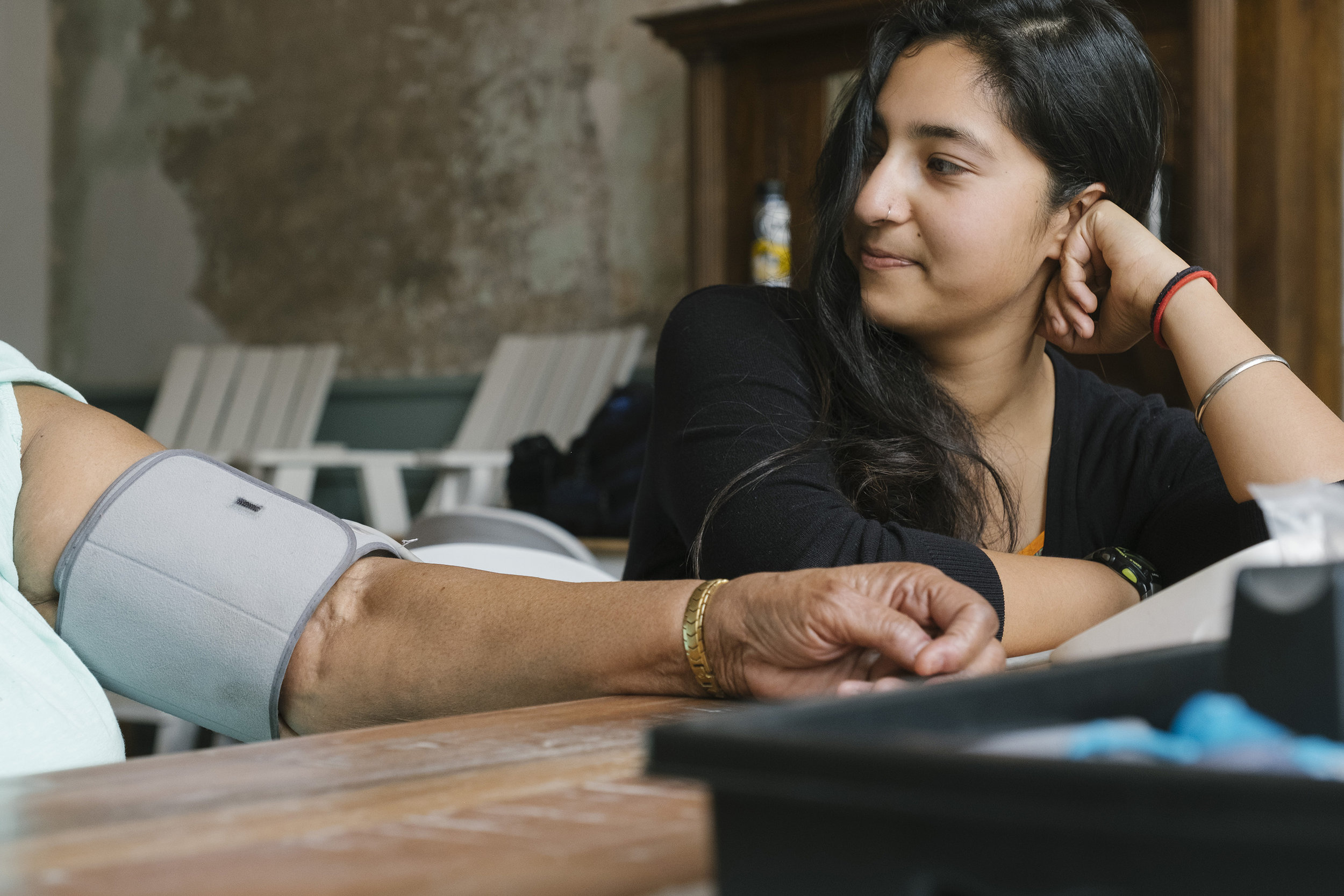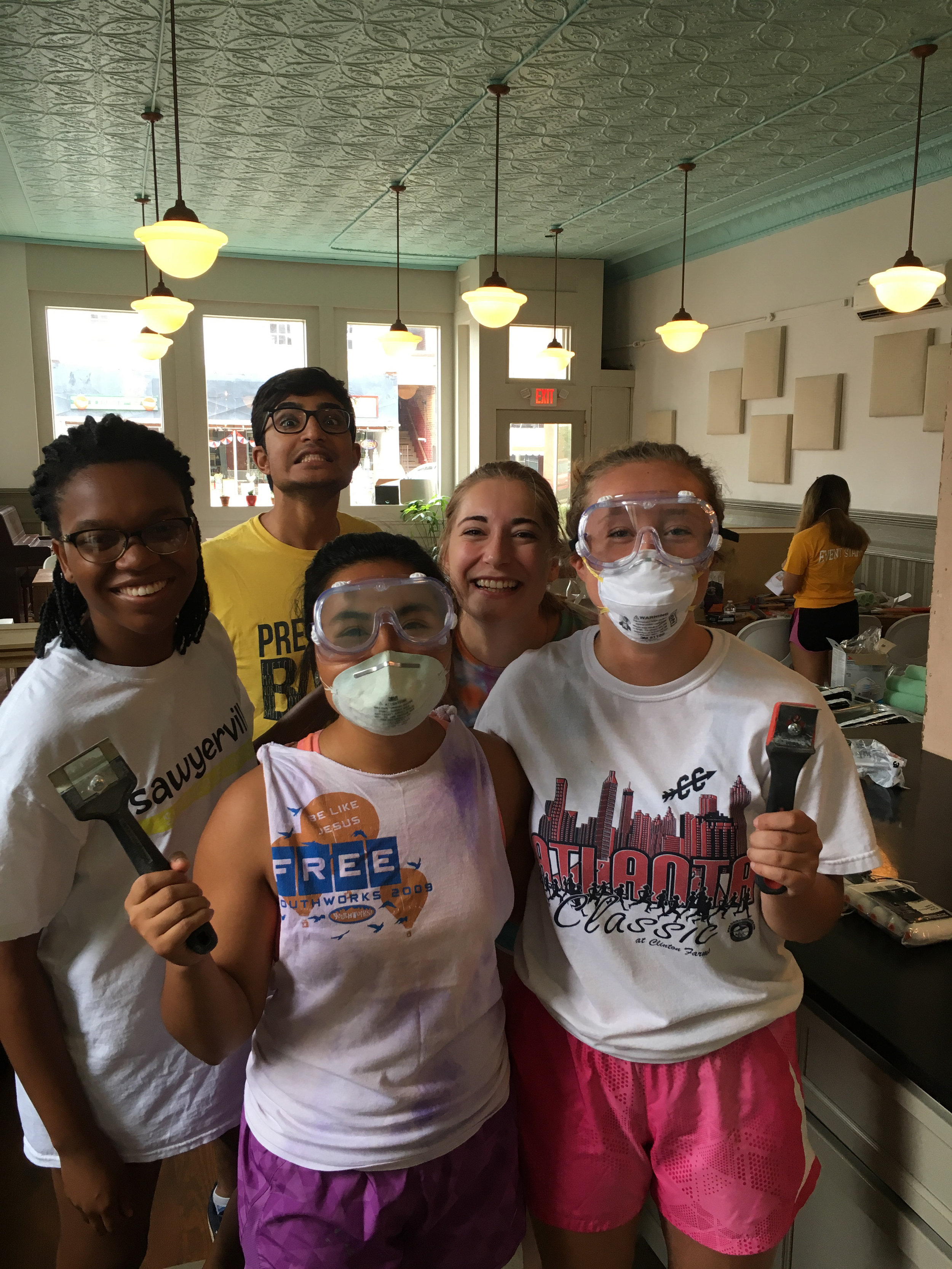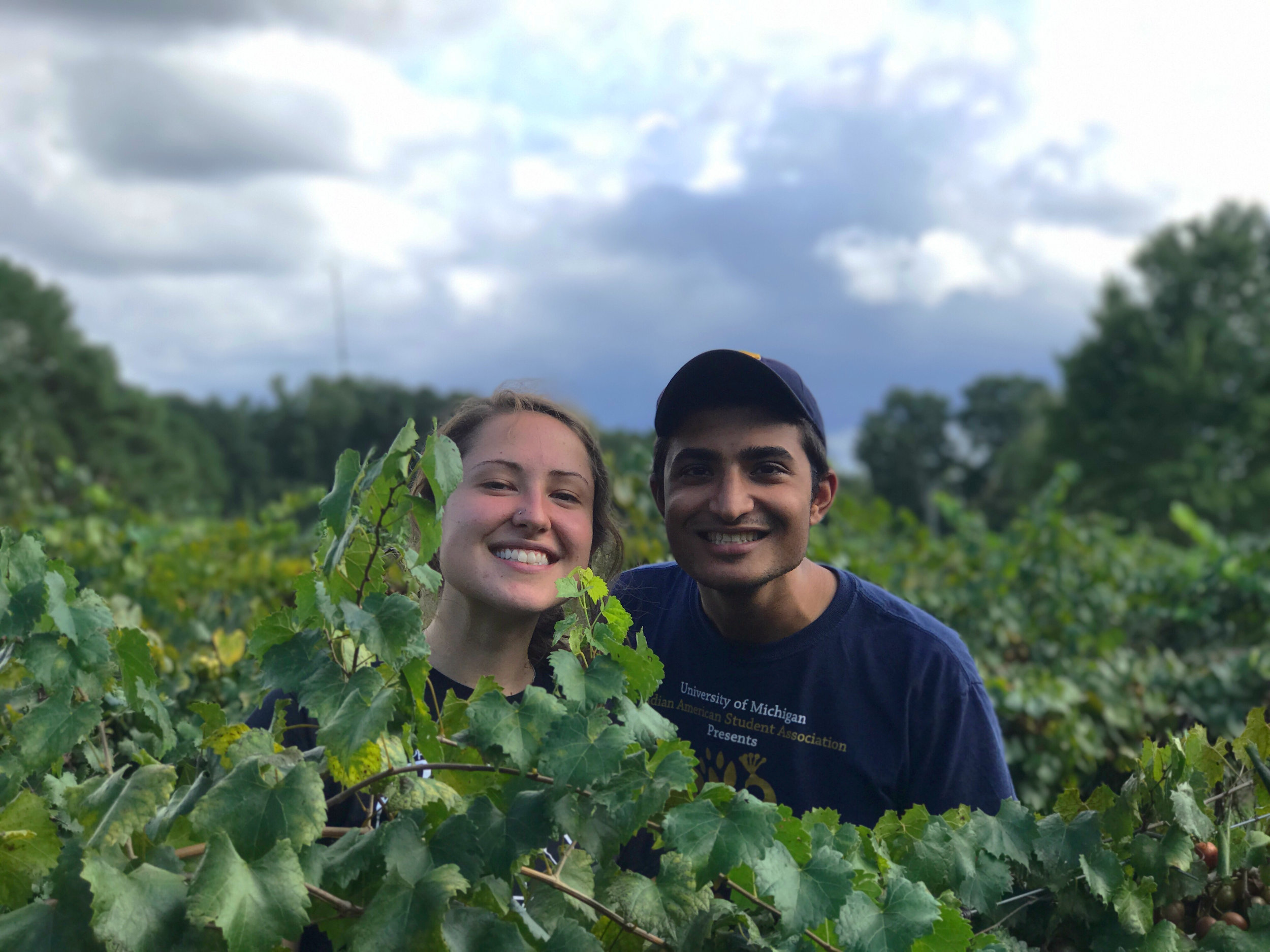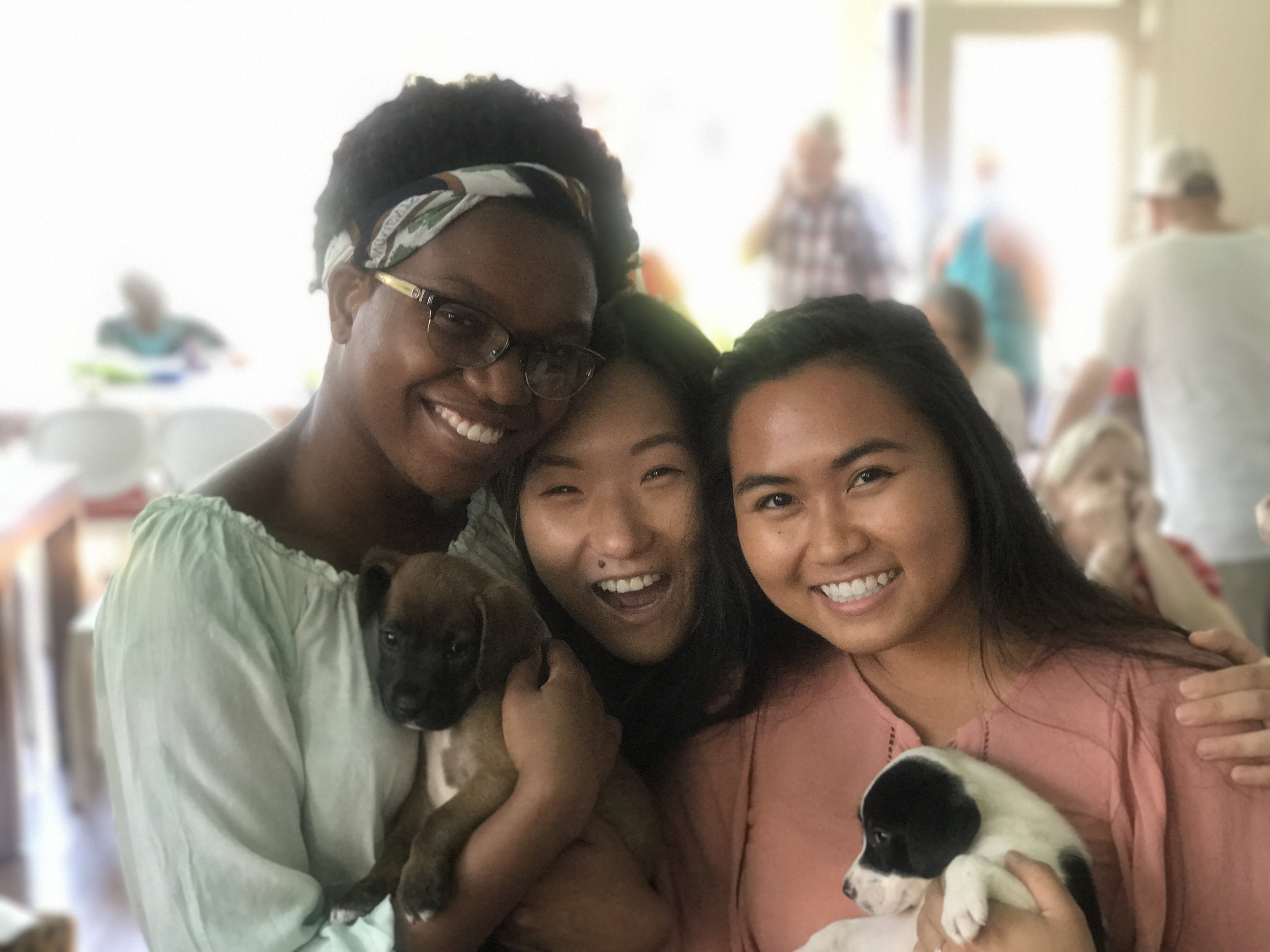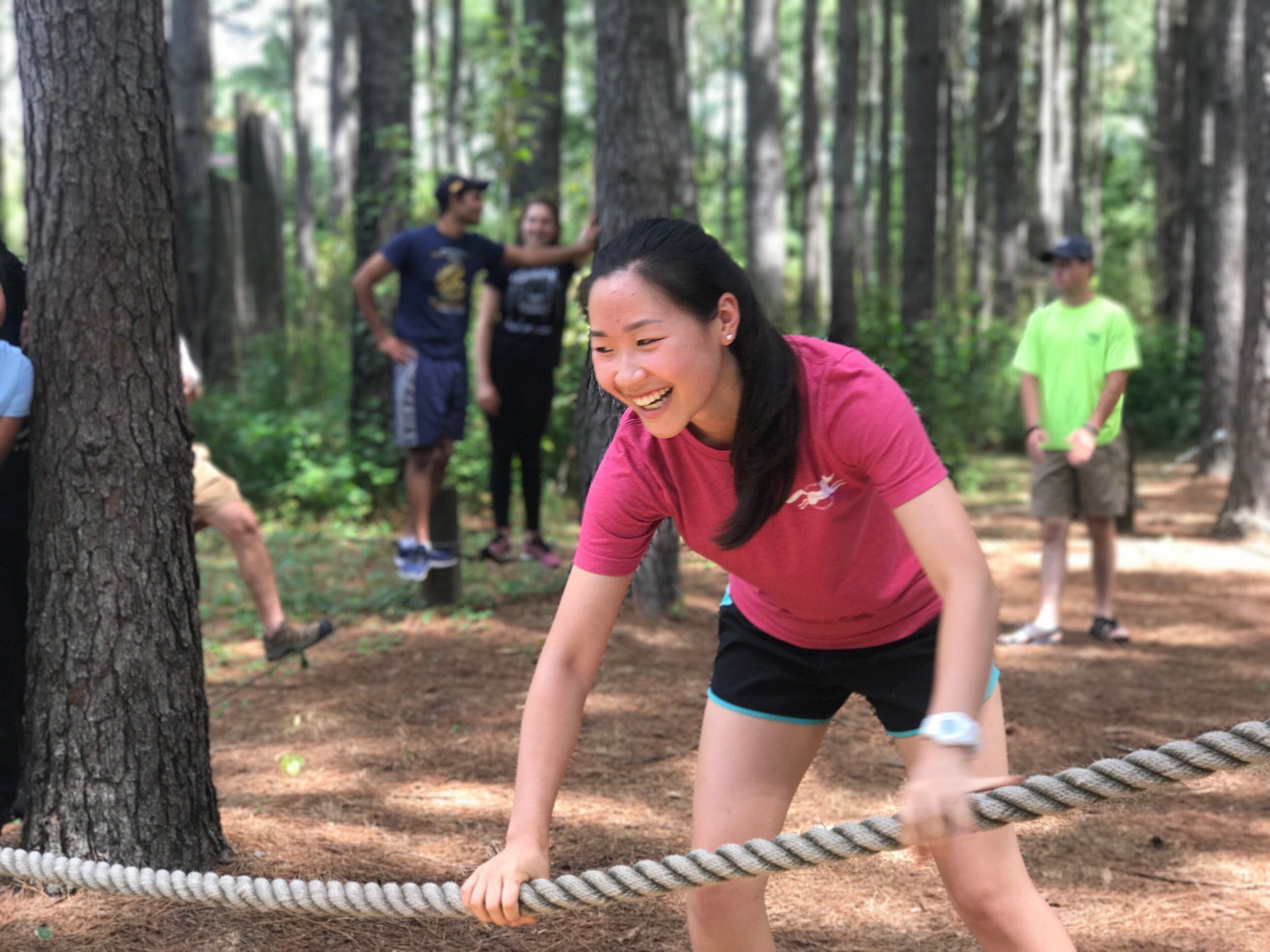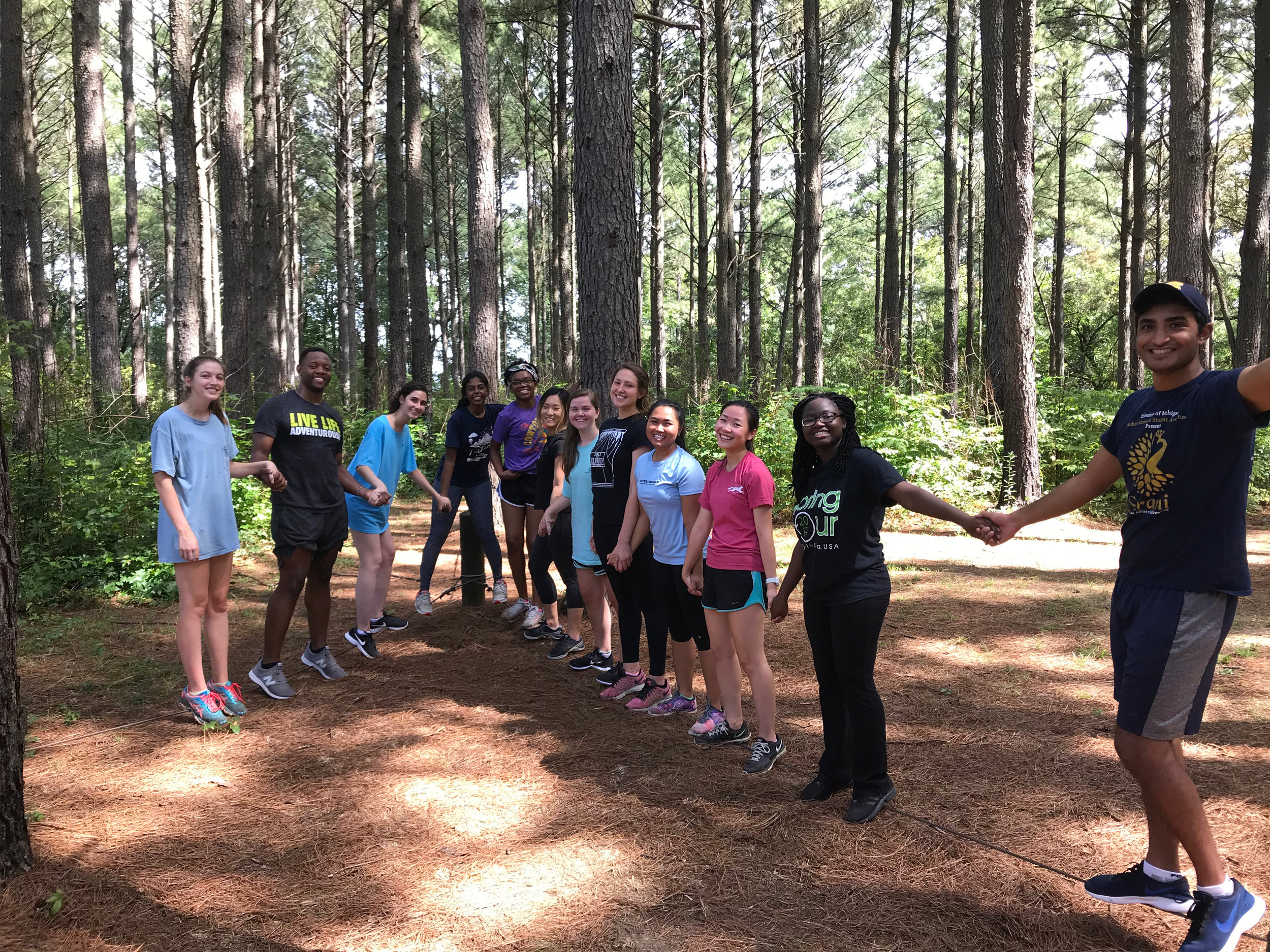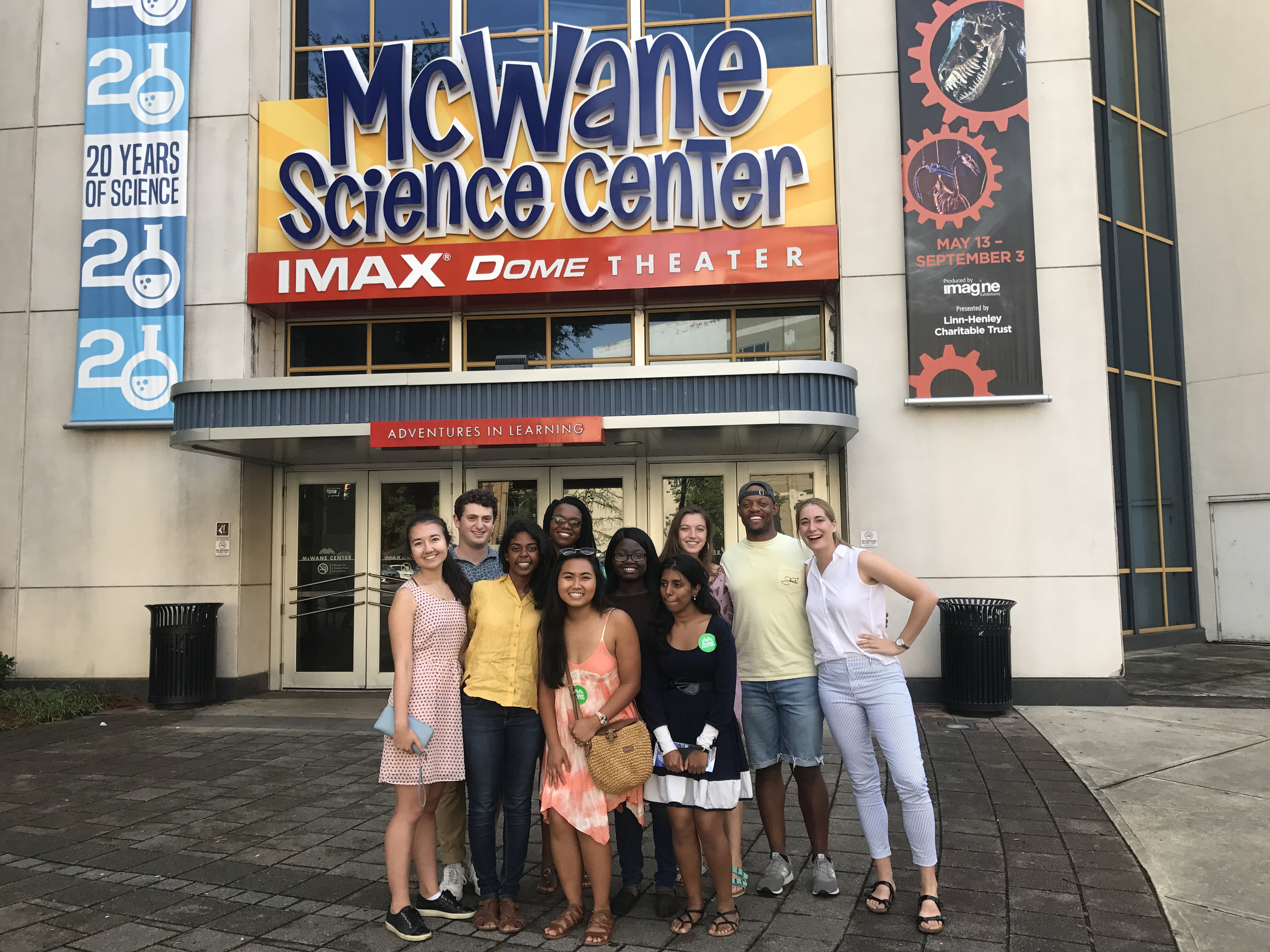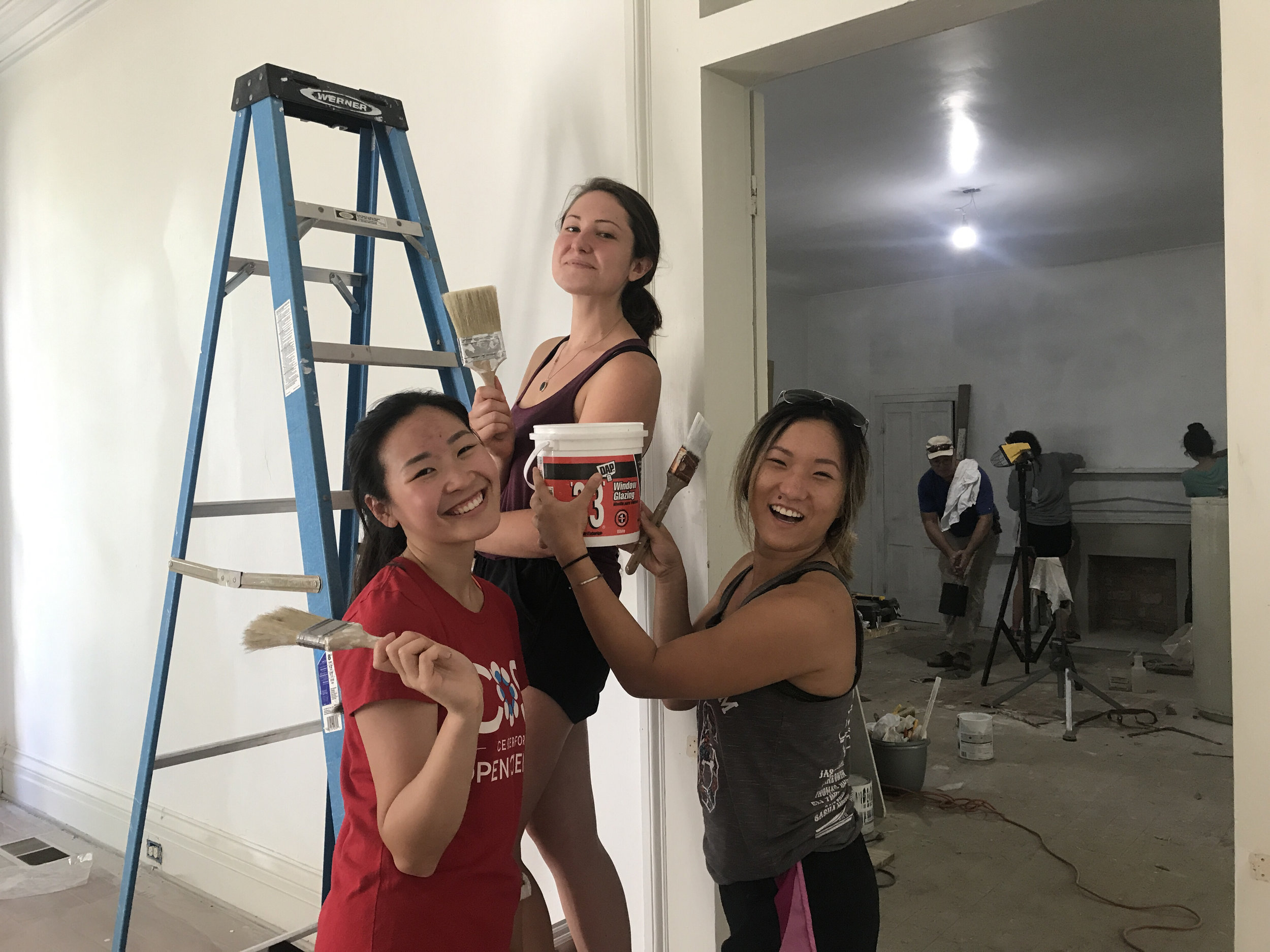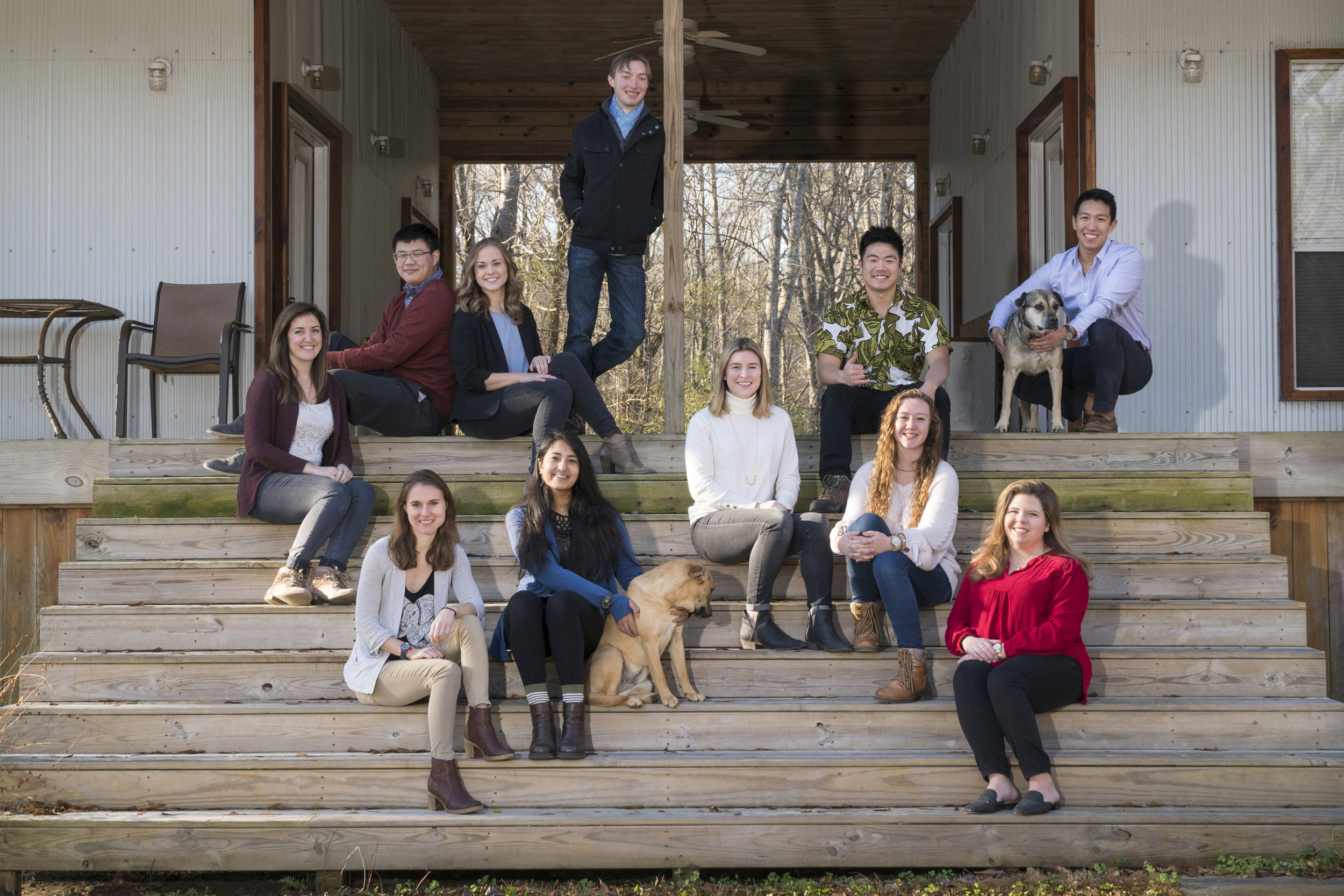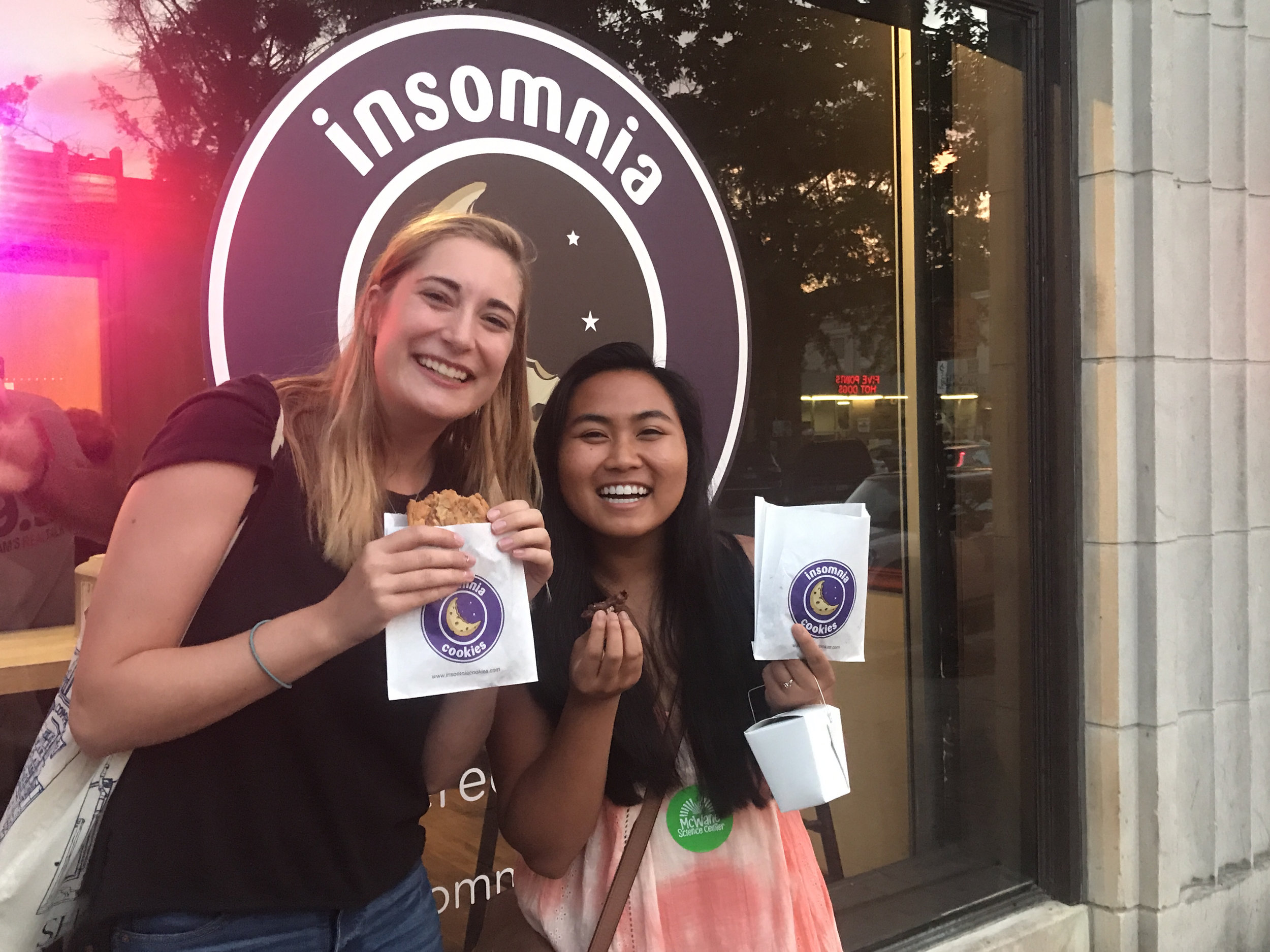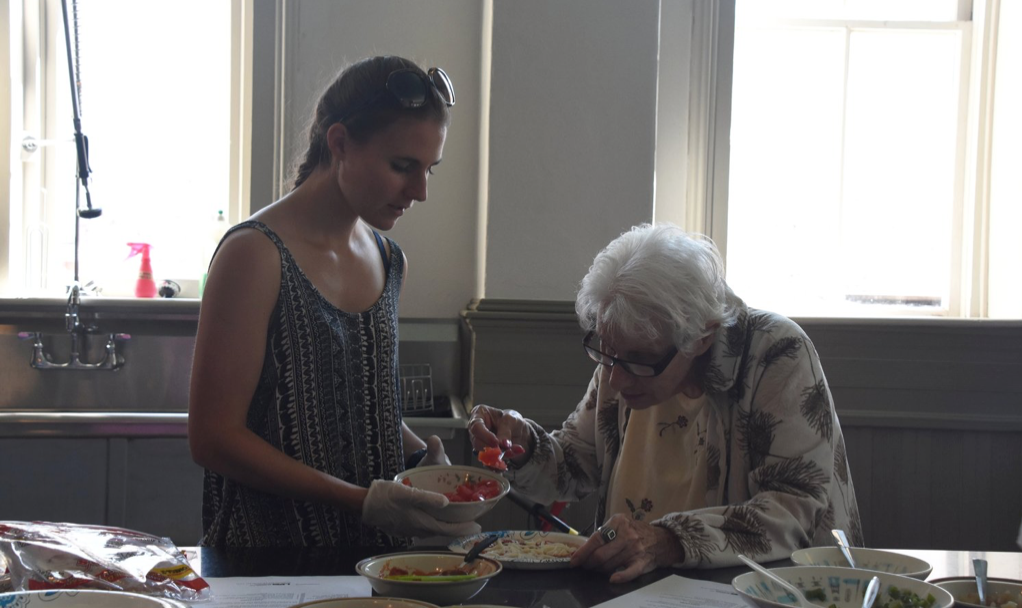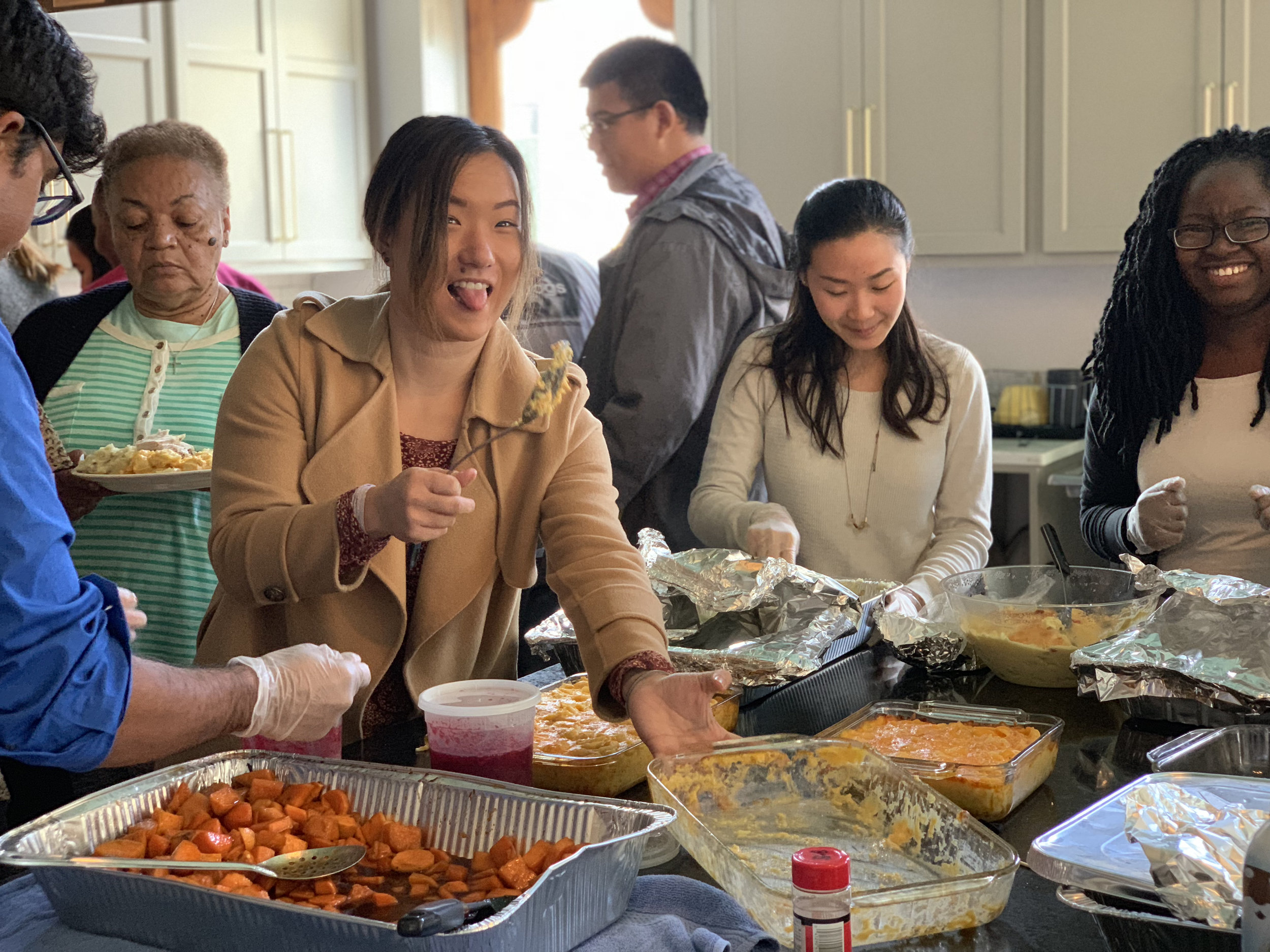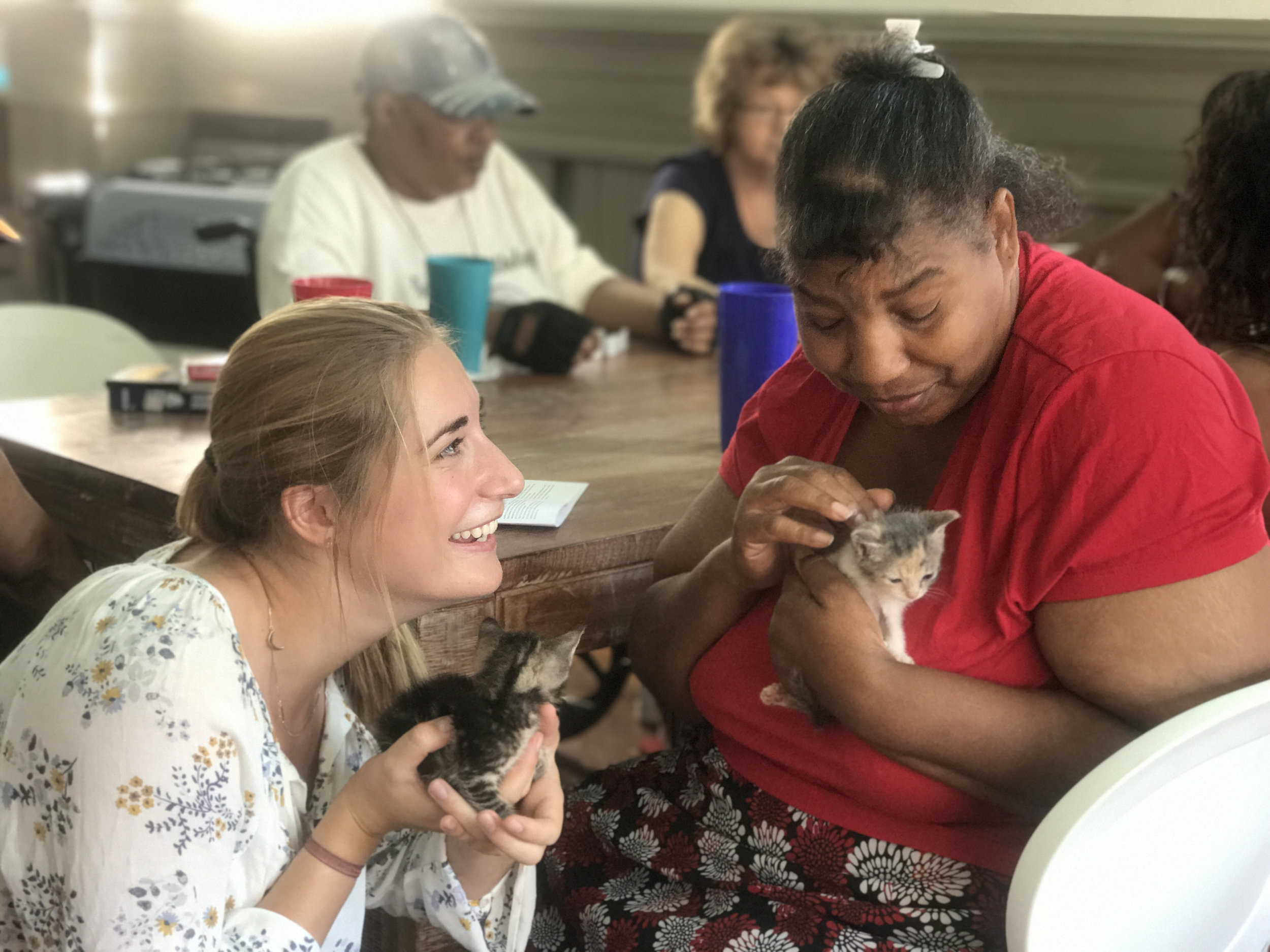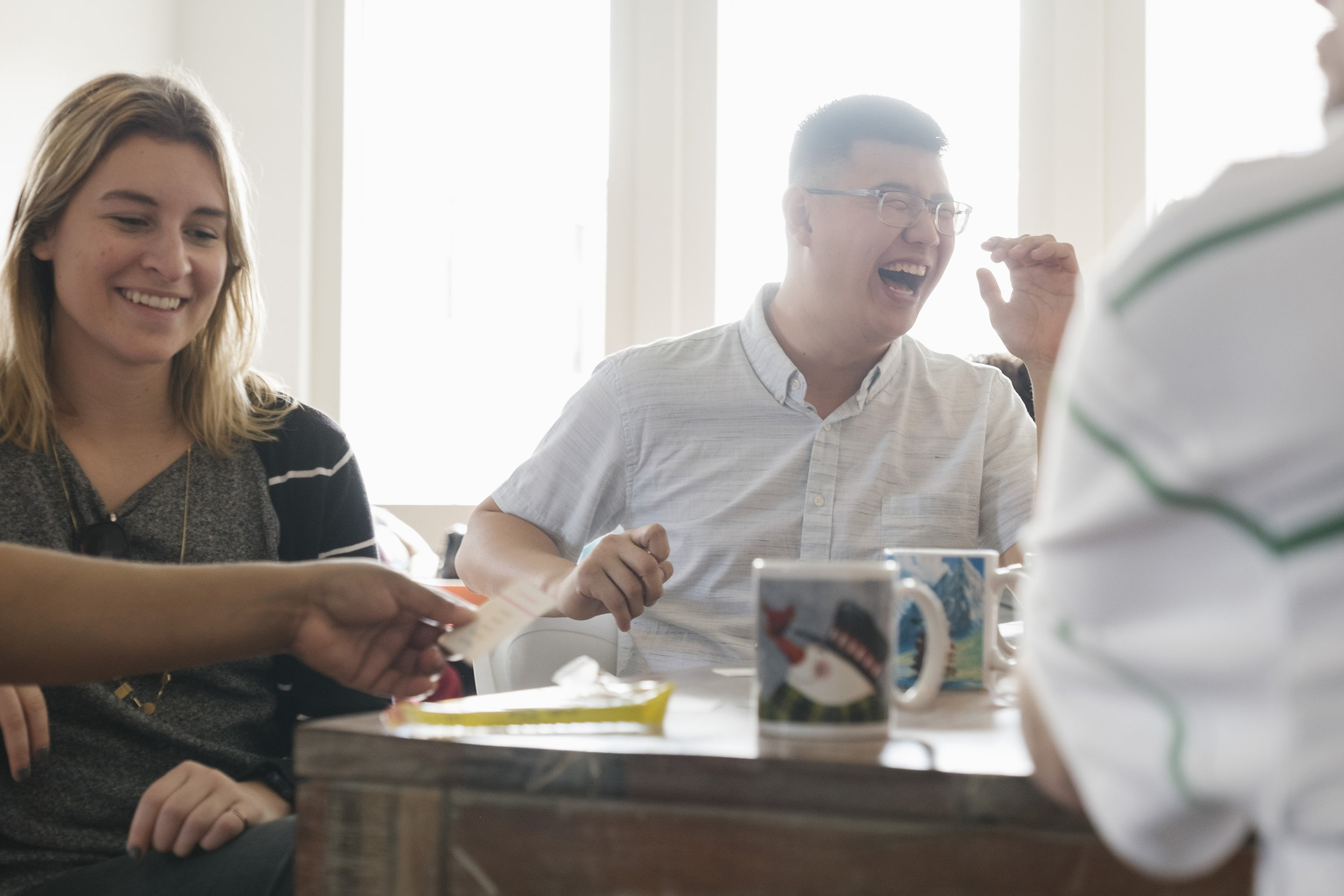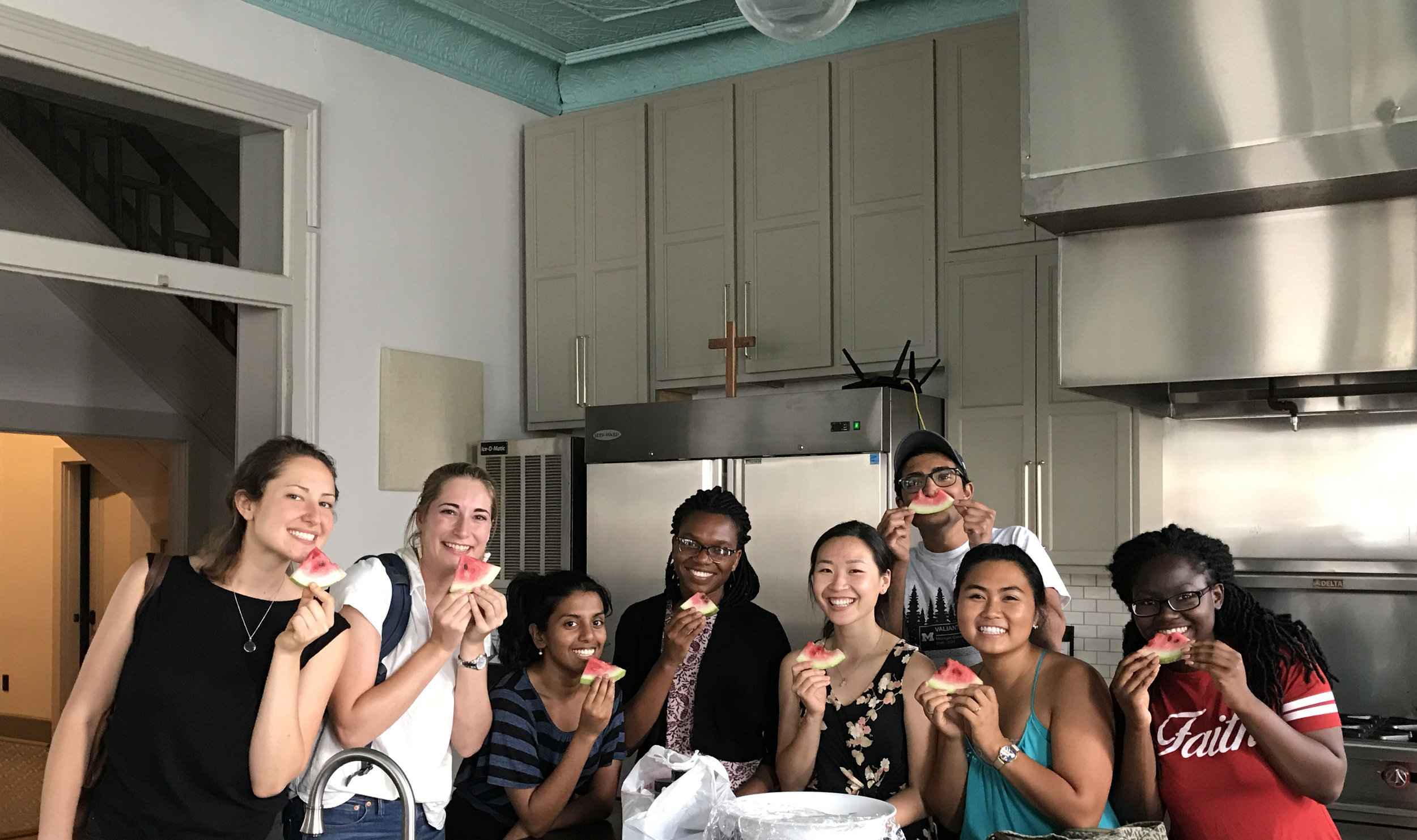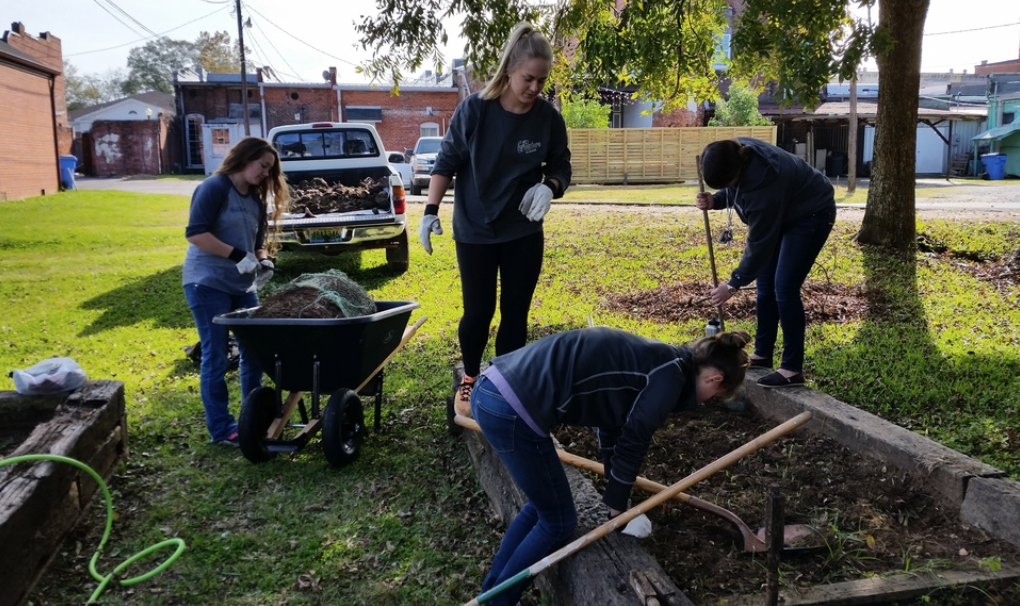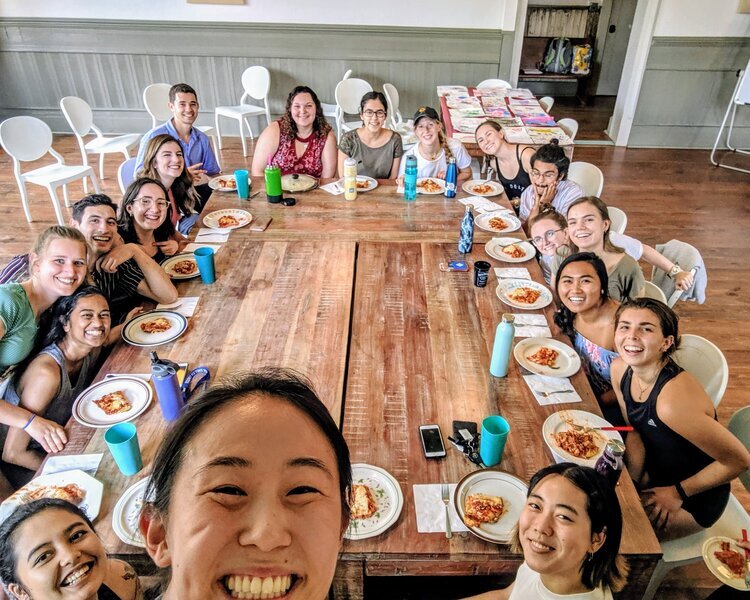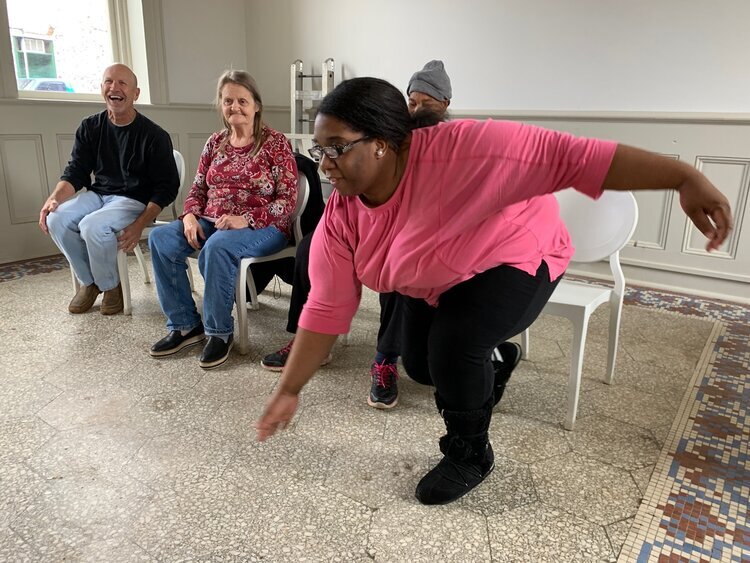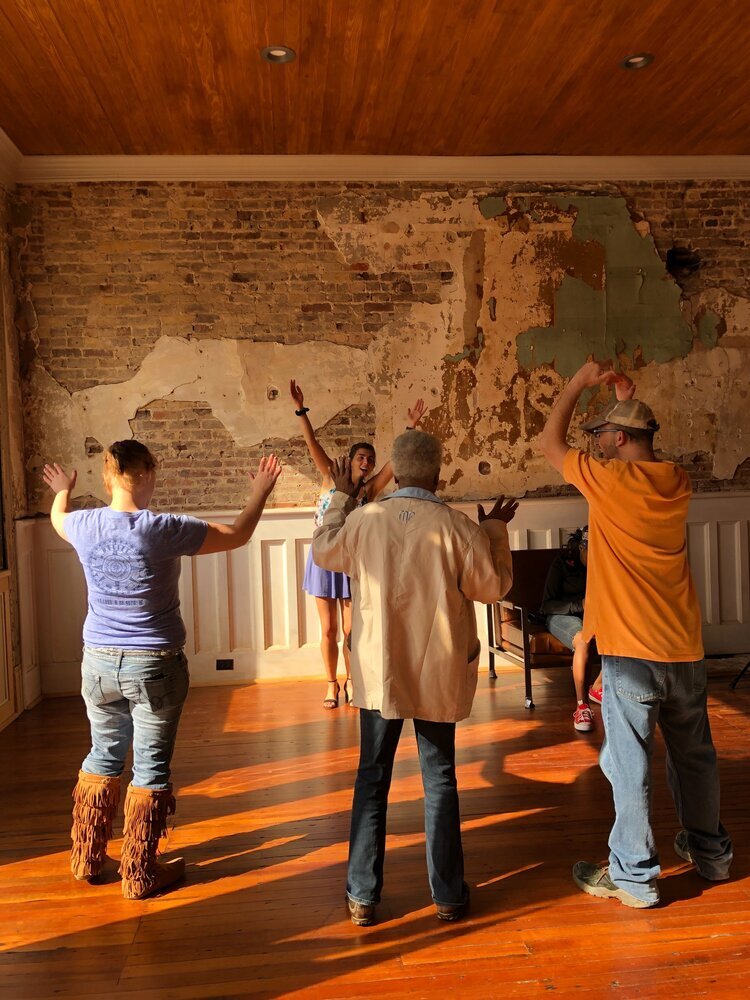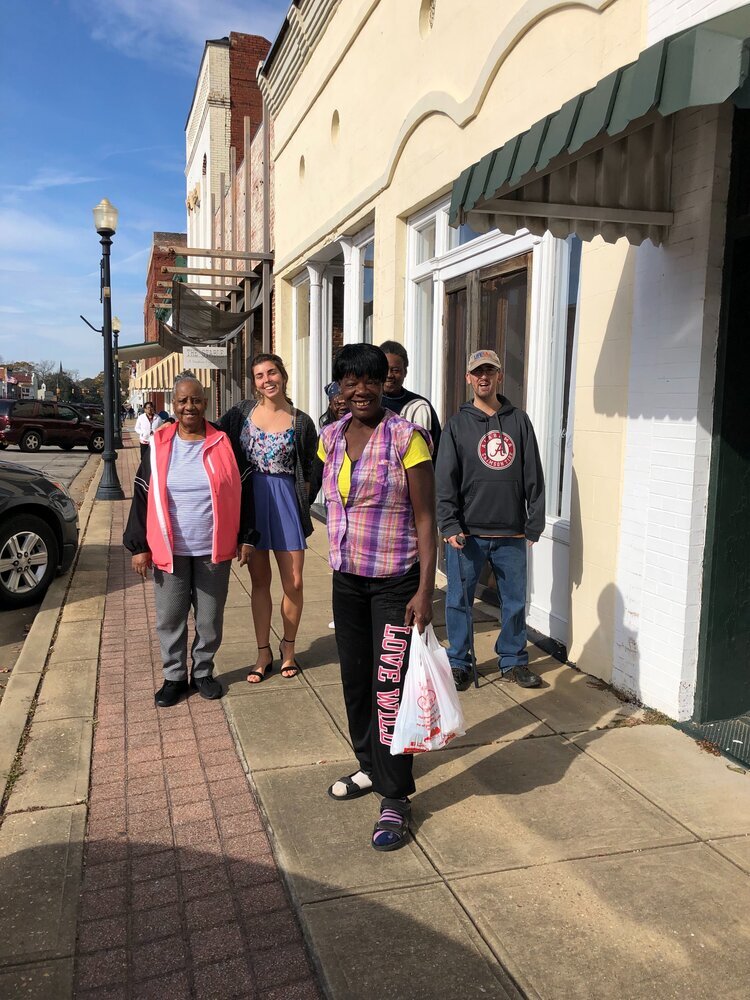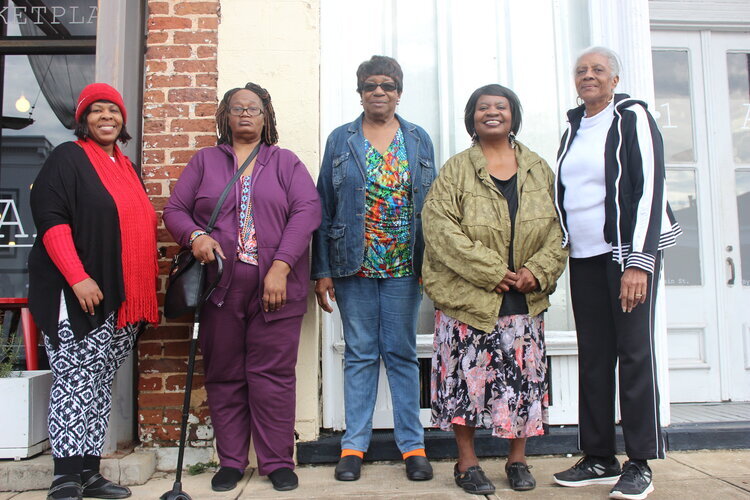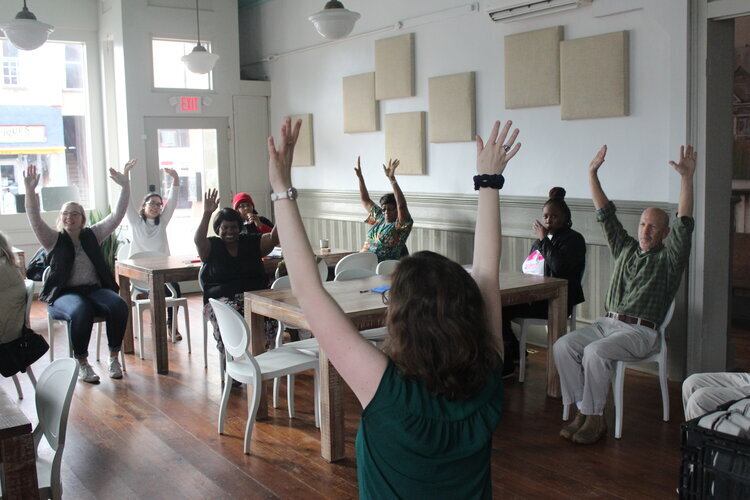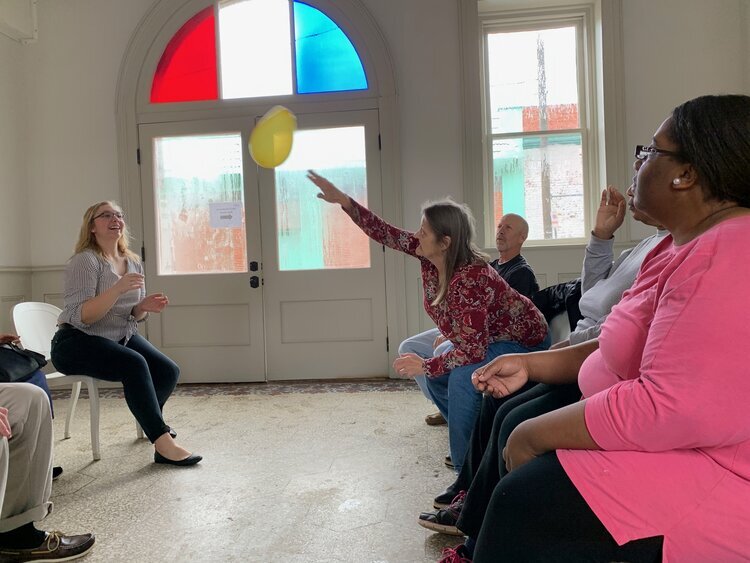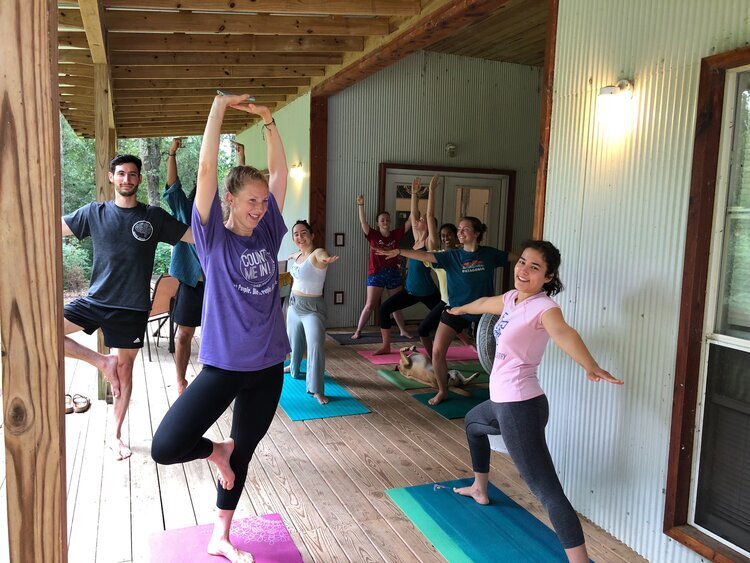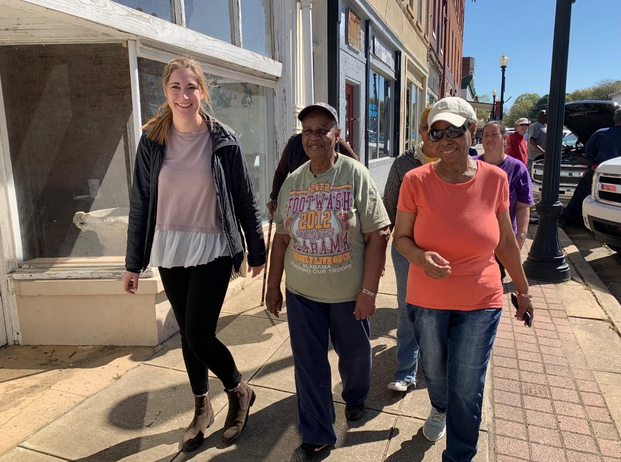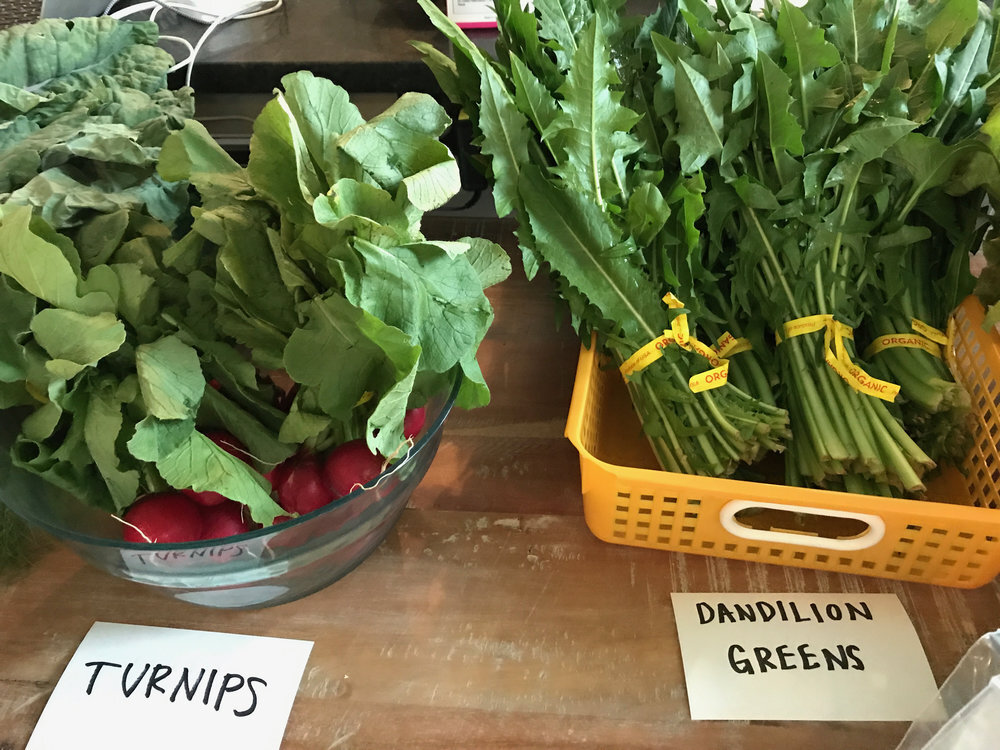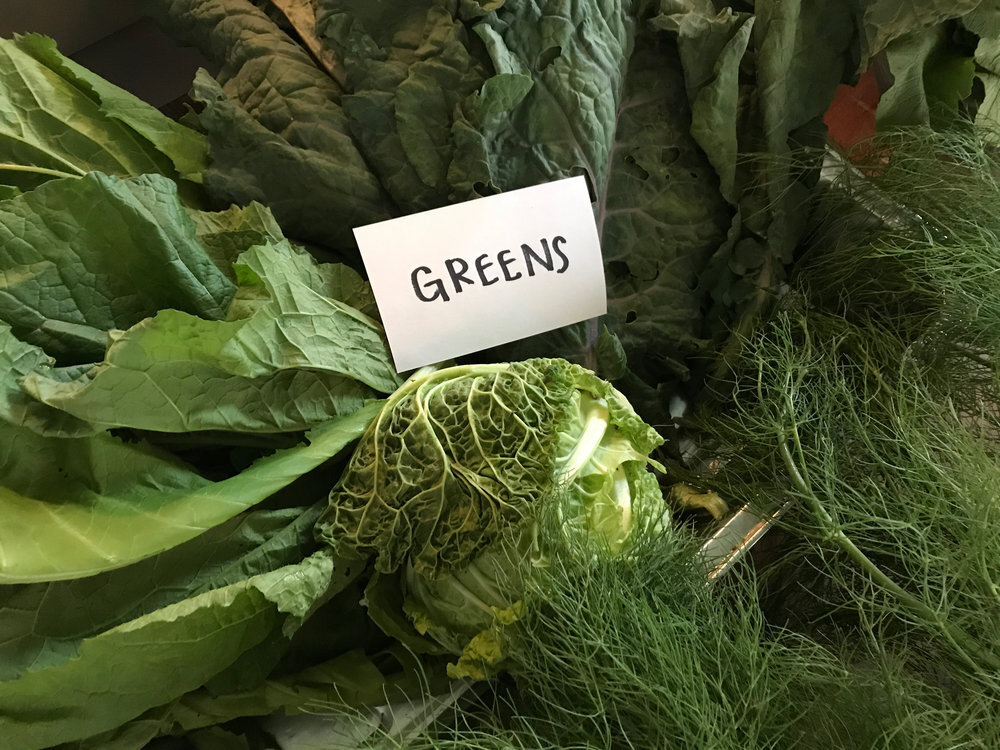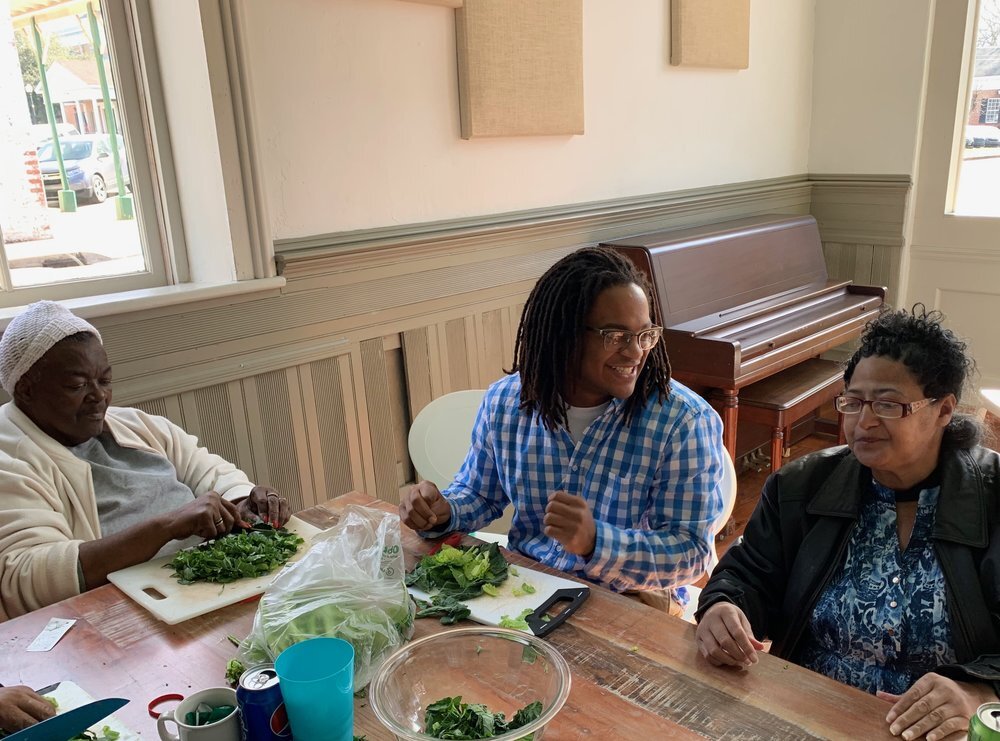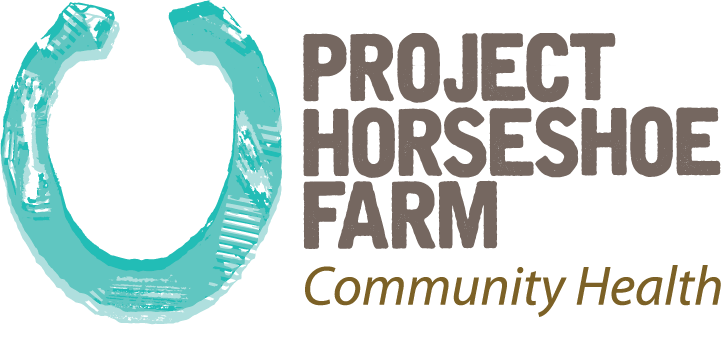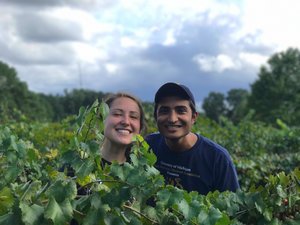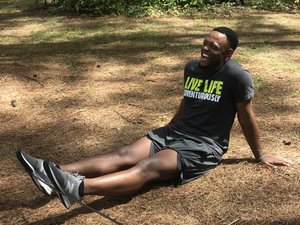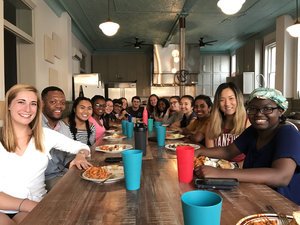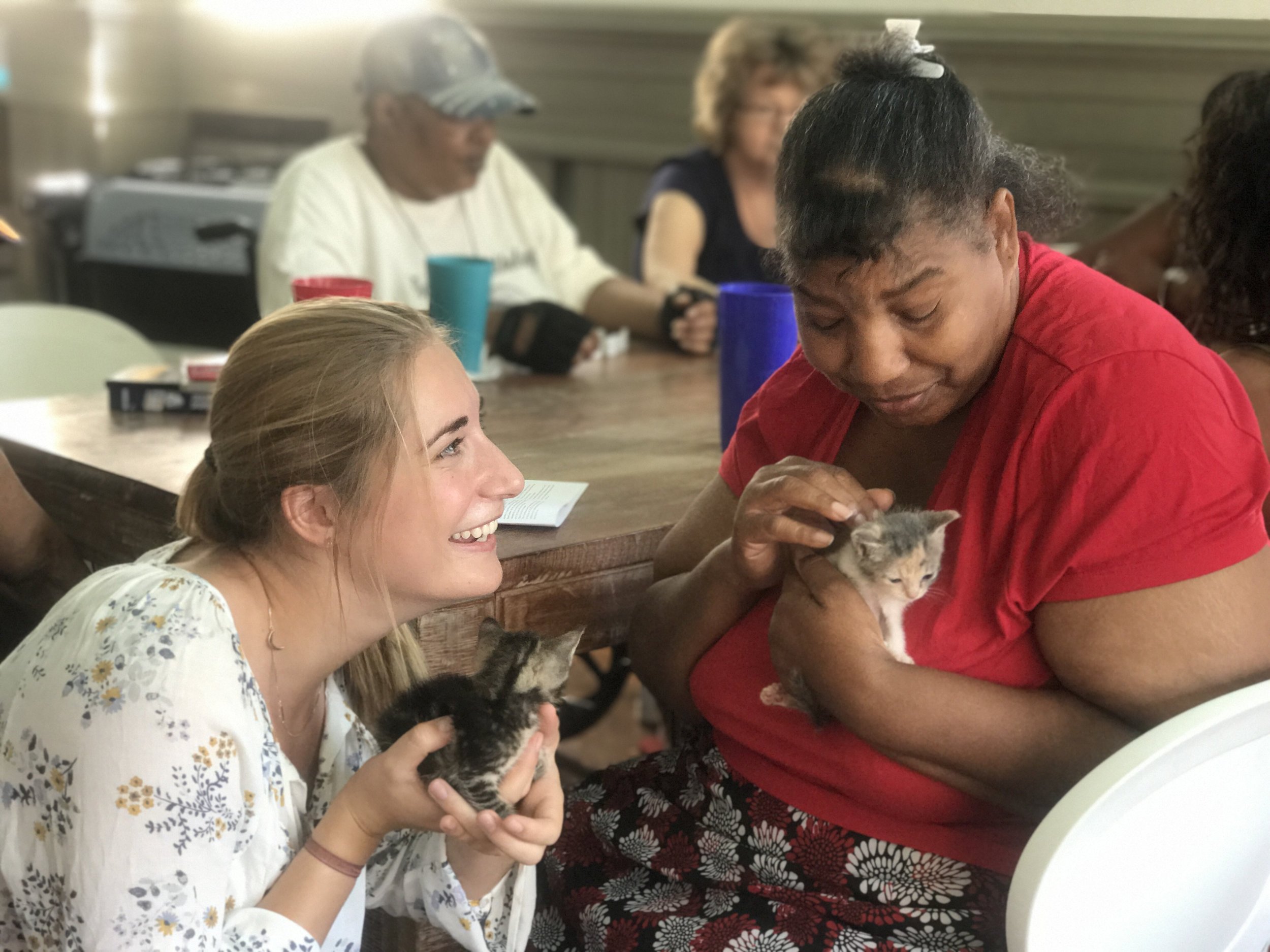COPY DRAFT Community Health Fellowship DRAFT V2.1
What is required of us now is a new era of responsibility -- a recognition on the part of every American that we have duties to ourselves, our nation and the world; duties that we do not grudgingly accept, but rather seize gladly, firm in the knowledge that there is nothing so satisfying to the spirit, so defining of our character than giving our all to a difficult task. This is the price and the promise of citizenship. - President Barack Obama, First Inaugural Address.
One third of Horseshoe Farm’s mission is to prepare citizen service leaders for tomorrow’s communities. But what is a citizen service leader?
In nearly every community there are individuals who dedicate and stretch themselves far beyond what is required in service to their neighbors and their broader community. These individuals don’t pursue this path for pay, recognition, ease of life, or external reward. They understand that part of the deal is feeling challenged, extended, and often fatigued. They thrive, persevere, and ultimately sustain themselves by the opportunity to use their time and talents to fulfill their duty to their neighbors and their community, and to work with others to try to make things a little better.
Horseshoe Farm believes that there is a particular type of citizen service leadership that has a special capacity to change lives, strengthen the social fabric in local communities, and improve community health in a way that cuts across the differences between us that can sometimes divide us. It is formed by individuals who give of themselves to provide volunteer service to their vulnerable neighbors.
To contribute to the vital strength these citizen service leaders bring to local communities and to prepare the next generation of these leaders, Horseshoe Farm created a one-year Community Health Fellowship for top recent college graduates. Fellows volunteer with local healthcare, education, nonprofit, and other organizations to extend their capacity to provide relationship-based support to children, adults living with mental illness, seniors, and other vulnerable individuals.
Through this rigorous, intensive, and immersive year of volunteer service and learning, Fellows deepen their understanding of the intricate relational and humanistic aspects of service, experience a way of engaging and working effectively with local institutions and local communities, develop and hone leadership and teamwork skills, and gain a practical appreciation of how their efforts and sacrifice contribute to the health and quality of life of our vulnerable neighbors and to a broader framework of community health.
-
If you’d like to learn more about the work we do, please visit the following pages for detailed information about our programs and the Fellowship:
Volunteer Service
Broader Community Engagement
Teamwork and Leadership
Learning, Mentorship, Reflection, and Education
*Please note that though we believe that activism and political advocacy can be important means for achieving positive change, Horseshoe Farm does not engage in political advocacy or activism or take positions on political issues or other causes, and neither political advocacy nor activism is part of the Fellowship experience or the Horseshoe Farm culture. There are many excellent organizations that focus on activism and political advocacy, and if these are your interests for your gap year, we encourage you to seek out opportunities with these organizations.
-
Fellows receive valuable experience through:
-Mentored relationship focused volunteer service to seniors, adults living with mental illness, other vulnerable adults, and children.
-Work with health providers, teachers, community center and nursing home leaders, and other local service leaders, extending their capacity to provide relationship focused care and support to those they serve.
-Hands on exposure to Horseshoe Farm’s multidimensional approach to impacting community health and the biopsychosocial aspects of community health.
-Close work and collaboration with a team of other talented Fellows and ongoing teaching and mentorship from top notch Site Directors.
-Learning about health systems, health policy, and Horseshoe Farm’s approach to reinforcing and strengthening health and education systems and engaging and working effectively with local communities.
-Experience with and learning about operations, strategy, management, leadership, finances, and other aspects of community based non-profit organizations. Introduction to concepts related to starting new initiatives.
-Volunteer work with local community organizations and other opportunities to get to know your local community more broadly.
-Weekly reading and discussion series (syllabus overview)
*Horseshoe Farm is increasingly being recognized by top medical schools and graduate schools across the country. Our Fellows tell us that their experience as a Fellow tends to be a major focus during their interviews. Fellows consistently go on to some of the top medical, nursing, public health, health management, and education programs in the nation and a significant number have received the most prestigious scholarships and awards at their respective institutions.
-
Accepted Fellows receive free housing and an educational grant of $800-$1050/month (site dependent).
-
Fellows should expect to work very hard during the Fellowship. Typical weeks involve approximately 50-55 hours (and sometimes more) of volunteer service, community engagement, educational, administrative/planning, and other activities. Fellow activities frequently can be called for in the evenings or on weekends. At the Greensboro Site, Fellows should expect to regularly provide support on weekends (approximately one weekend/month) and sometimes on Federal Holidays to the women at our two enhanced independent living housing programs.
One of the strengths and unique features of the Horseshoe Farm Fellowship is the breadth of experiences in community health and education and the exposure in an integrated way to multiple dimensions of citizen service leadership. All Fellows participate in all aspects of the Fellowship. It is easier to describe a typical week than a typical day.
Please keep in mind that every year is different, and each year inevitably brings new challenges and new and unexpected circumstances. We are looking for Fellows who have the flexibility and resilience to adapt and maintain a positive mindset and can do attitude even when things do not go exactly as planned. The following provides an approximate breakdown of Fellows’ activities during the week (all of the times below are approximate and may extend longer). We are looking for Fellows who maintain a mindset of extending themselves in pursuit of our mission and personal growth and going above and beyond to get done what needs to get done:
*The times below are approximate (approximately 32 hours per week is spent in volunteer service to others -- this includes volunteering to help vulnerable neighbors through the health partners program, volunteering with children in local schools, volunteering at local community center programs, and volunteering at a local nursing home or other housing program for vulnerable adults). The remainder of time is spent on other complementing activities related to developing as citizen service leaders.
16 hours/week volunteering with 8-10 “health partners” (building relationships and providing a consistent, caring, and supportive relationship (this is the foundational and most important part of the health partners program), providing home visits, attending medical appointments with health partners, helping navigate health and social services systems, health coaching, support to family, help with budgeting and finances, providing a stable, consistent, and caring relationship, providing rides, etc.). Fellows also have regularly scheduled meetings with their Site Director to discuss their health partners and to receive ongoing teaching and supervision.
6-8 hours/week volunteering with students in an elementary school teacher’s classroom (“power hours”). Fellows volunteer in pairs in the same classrooms and with the same small group of students over the course of the year so that they can build relationships with teachers and students and make progress over the course of the year.
½ day/week volunteering to help lead activities at a local community center, senior center, or center for vulnerable adults. Fellows also help participants by providing rides to and from community center on other days.
½ day/week volunteering at a local supported housing program, other housing program for vulnerable adults, or nursing home -- regular visits and support to a small group of “health partners” in these settings, help with programming, other support. (at Greensboro site, Fellows also provide weekend support one time per month to women in our enhanced independent housing program).
½ day/week volunteering at a local “community engagement” site (local civic, business, government, non-profit, or other organization -- past Fellows have volunteered in the Mayor’s office, at local non-profits, with local libraries, at local animal shelters, at local healthcare agencies, with local schools, at local museums, with local contractors, with local police and sheriff’s offices, at local attorney’s offices, etc.).
4-10 hours per week of program planning, operations, special projects, and administrative time (This varies week to week and varies depending on operational functions that are occurring at a particular time of the year. For example, time spent on these activities tends to increase substantially during our recruitment and selection period). Because of other responsibilities during the week, Fellows should expect that some of this planning, administrative work, or operations work will have to occur on Saturdays or in evenings.
Approximately 6 hours/week of education, supervision, discussions, and other meetings - Monday evening discussions and movies related to readings led by Site Directors (Mondays from 4:30PM - 7PM), individual supervision and check-ins with Site Directors, morning team meetings with Site Directors, weekly team meeting and teaching with Horseshoe Farm Executive Director.
Approximately 2 hours/week of assigned readings in preparation for Monday Discussions.
Periodic weekday evening and weekend community social events, potlucks, community and civic meetings, etc. It is important to remember that community immersion is a vital part of the Fellowship experience, and that community events are an important part of getting to know and becoming a part of the community.
Approximately 5 hours/week -- PORTCH Fridays including lunch speakers and visits in the community that focus on:
People - getting to know a range of local people and leaders in the community.
Organizations - getting to know a range of local organizations in the community
Relationships - build, develop, maintain, and strengthen relationships with others in the community.
Team Building - participate in team building activities to help support our effective function as a team.
Culture/Community - learn about the local culture of the community and other aspects of the community.
History - learn about the local history of the community.
Monthly Saturday workdays, cleanups, maintenance work around Horseshoe Farm and sites, or special events or work days with partner organizations -- scheduled by Site Directors, typically 1 Saturday per month.
Ultimate Frisbee evenings (optional) - this has been a popular tradition started at our Greensboro site. Interested Fellows organize and get together once a week with Teach for America Teachers, Auburn University Rural Studio students, other young (and young at heart) members of the community for an opportunity to decompress, get some exercise, and socialize with others.
Fellows typically organize and attend other evening and weekend social events, gatherings, and activities with other young people in their communities.
1 day per week protected time (generally Sundays) to relax, recharge, do laundry, catch up with family, etc.
Sample Weekly Calendar - Link
-
What can Fellows expect to learn from their volunteer service and educational year?
Fellows are challenged to learn through a range of interrelated experiences including through the opportunity to provide direct volunteer service to others in Horseshoe Farm’s innovative programs for vulnerable adults and children, to actively engage with local communities, to learn about and participate in operations responsibilities within a growing non-profit organization, and to gain exposure to and make a contribution to local health and education systems. The year is intended to challenge Fellows in multiple ways to prepare them as future citizen service leaders and leaders in community health.
Direct volunteer service and support to others: Fellows have the opportunity to learn about and deepen habits of citizenship service leadership by working closely with and providing volunteer support to their vulnerable neighbors in collaboration with and support of local health care organizations and providers, schools and teachers, housing programs/nursing homes, and community center programs. With the support and mentorship of their Site Directors, Fellows gain a deeper understanding of the value of humanity and relationships in service and the important psychological, social, and community factors that contribute to health and quality of life among vulnerable people. Furthermore, Fellows learn about how volunteering their service to vulnerable neighbors relates to leadership in a community, and how this type of leadership can strengthen communities and improve community health.
Become immersed within a community: All of our sites (Greensboro, Alabama, Marion, Alabama, and Pomona, California) provide an excellent opportunity for Fellows to see and begin to understand the relations of different people and processes in a community. Through their volunteer service, Fellows are able to learn about and support local institutions including healthcare organizations, elementary schools, community centers, housing programs, and other community organizations. They are also encouraged to visit with and get to know their local neighbors, leaders, participants, partners, and other members of the community. Through their experiences, Fellows should be able to appreciate diverse local values and the contributions of different members of the community. They should also learn about the important relationship between community involvement and engagement and community based service work. Finally, they should begin to appreciate their own role, impact, and responsibilities as citizen service leaders in the context of a local community.
Gain management, operations, and leadership skills: Fellows are given the opportunity to gain valuable experience by learning about and being involved in many facets of the operations of a growing community based non-profit organization and its initiatives. This includes everything from learning about budgets, finances, and strategy, to helping with recruitment and outreach, to participating in upkeep, maintenance, and cleaning of facilities. The hope is that Fellows will gain operational, management, and leadership experience that will help prepare them to positively impact tomorrow’s community based health, education, and service organizations and systems.
Strengthen teamwork skills: Teamwork is critical to almost any effective community initiative and working with teams towards a common purpose and mission can be one of the most satisfying and rewarding experiences a person can have. Fellows work very closely day to day with other Fellows, with their Site Directors, and with community partners. We are specifically looking for Fellows with strong teamwork skills and a desire to work closely in a team environment.
Learn about community health, health systems, and health policy: Fellows gain real world experience through immersion in these systems. They also participate in weekly readings and discussions, and receive ongoing teaching to help them gain a deeper contextual understanding of these complex systems.
Meet other leaders: Fellows have the opportunity to meet various leaders from business, government, philanthropy, healthcare, community organizations, and other sectors who regularly come to visit, who partner with, or who come speak with Horseshoe Farm and our Fellows.
Who should consider applying for the Fellowship?
We invite applicants from the full spectrum of majors and backgrounds who have an interest in and the potential for community-based citizen service leadership.
Though academic credentials will be taken into consideration, we seek individuals who have positive personal characteristics such as a positive attitude, sense of gratitude, maturity, empathy, integrity, flexibility, teamwork skills, and strong work ethic. We also seek Fellows who understand Horseshoe Farm’s values, want to adapt to, be a part of, and learn from the Horseshoe Farm culture and approach to teaching community service leadership (please read Horseshoe Farm “Who We Are” document), and are desiring of working with us towards Horseshoe Farm’s mission. Fellows will be accepted from a national pool of applicants.
What’s the difference between a job and the Horseshoe Farm Fellowship?
This distinction cuts to the very heart of Horseshoe Farm, its approach, and its mission. The Horseshoe Farm Fellowship is not a job or employment, but rather a grant supported volunteer service and educational year year (a Fellowship) specifically designed to help prepare top recent college graduates to learn to become citizen service leaders and leaders in community health. For those who are looking for an intensive, immersive, rigorous, and challenging year of volunteer service and learning and exploring how these relate to citizen service leadership, Horseshoe Farm might be a good match. For those who are looking for a job or employment arrangement, Horseshoe Farm is probably not the best match.
The Fellowship provides a unique opportunity for a structured, supported, and mentored dive into many of the elements of citizen service leadership by combining elements of volunteer service, community immersion and engagement, reflection, readings and discussions, and ongoing teaching and mentorship, all in real-world settings, to achieve its educational goals.
We encourage applicants who are interested in providing service to others as part of an employment arrangement or in a job setting (including for those who are looking for organizations with human resources departments and the like) to please seek out other opportunities that are a better match for their goals and interests. (please see https://www.projecthsf.org/gap-year-fellowship for description of citizen service leadership and the particular type of citizen service leadership that Horseshoe Farm is seeking to extend)
Is there a charge for the Fellowship? Do Fellows receive any financial support?
Because of the generosity of donors and their desire to help and support promising young people who willingly choose to make a personal sacrifice in pursuit of a year of volunteer service and learning , we are able to offer the Fellowship without tuition or charge to Fellows.
To help Fellows partially offset educational costs related to their year of volunteer service and learning, Horseshoe Farm provides housing and utilities free of charge to Fellows (approximate value of $7,200 - $12,000/year, depending on location) and an educational grant/transportation reimbursement (total of $800-$1050/month**) that is intended to help Fellows partially offset other basic living costs and their significant transportation costs related to the Fellowship. Finally, we are able to provide a small relocation grant to each Fellow to help partially offset their costs of moving ($100-$300 depending on distance).
**Due to differing costs of living, the Alabama Fellows receive an educational grant of $600/month to help partially offset basic living expenses related the Fellowship and $200/month to help partially offset gas/transportation expenses related to the Fellowship and the extensive use of Fellows’own vehicles for transportation of participants. The Pomona Fellows receive an educational grant of $750/month to help partially offset basic living expenses related to the Fellowship and $300/month to help partially offset gas/transportation expenses related to the Fellowship and the extensive use of Fellows’ own vehicles for transportation of participants.
Do I need to have my own automobile and an active driver’s license? YES!
Because of the lack of efficient public transportation in our sites, Fellows must each have their own car and an active driver’s license before starting the Fellowship. This is required not only for the Fellows’ personal transportation, but because Fellows use their own cars to provide a large amount of transportation in their volunteer service, including with their health partners (to visit them at home, to help them get to medical appointments, to help them with some other basic transportation needs). Fellows also help provide transportation to participants attending community center programs. Finally, Fellows will need their cars to transport themselves between the various sites where their Fellowship activities occur.
We don’t want Fellows to be caught off guard by the amount of driving that they will need their cars for and ask that you speak with current Fellows ahead of time to get an accurate sense of the amount of driving that is part of the Fellowship.
We realize that the extra mileage on Fellow’s personal vehicles creates an extra financial burden. To help alleviate some of this burden, we provide Fellows an additional monthly transportation reimbursement that is roughly the equivalent of the cost of a tank of gas per week for a small vehicle (see above re “Do Fellows receive any financial support?”). We recognize that this may not fully cover all transportation costs (including car maintenance and repairs expenses) related to the Fellowship, but hope that it helps significantly decrease the burden on Fellows.
One final note regarding automobiles. In parts of Greensboro and Marion there are dirt roads and roads that aren’t well suited to cars with very low clearance. If you have concerns, we encourage you to speak directly with our Fellows to get an accurate sense of whether your car would be well suited for these roads.
What have Fellows done after their Fellowship year?
The vast majority of past Fellows have gone on to one of their top choices of graduate school, medical school, or other job opportunities. Approximately 70% of past Fellows have gone on to medical school after their time at Project Horseshoe Farm and 100% of past Fellows who have applied to medical school have been accepted. Other past Fellows have pursued masters or graduate degrees in nursing, physician’s assistant, psychology, public health, law, public policy, and health administration. Several have gone on to positions in education and the non-profit sector. Multiple past Fellows have received full merit-based scholarships as well as some of the most competitive awards offered by their medical and graduate programs, including at some of the most competitive programs in the nation.
What are the start and end dates for the Fellowship?
The Fellowship will begin in late June or early July and end in mid-July of the following year. It is extremely important that Fellows be able to commit to the full period of the Fellowship to sustain our commitment to those we serve and to our partner organizations (very important to maintaining trust) and because the overlap period of incoming and outgoing Fellows is very important to helping to make a smooth transition from year to year.
What is the application and selection process like?
There is currently a single deadline for Fellowship applications. The application can be found near the bottom of this page. After an initial review process of each application, qualified applicants will be contacted to schedule an initial interview with one of our current Fellows and another Horseshoe Farm representative (Board Member, past Fellow, or other). After these interviews, a second group of applicants will be invited to schedule an interview with one of our site directors followed by a final interview with our Executive Director. The selection committee will then discuss each application and notify each applicant (typically by early April) about whether they will be offered a position in the Fellowship class. If you are offered a position in the Fellowship class, to be fair to other applicants, you will have only a few days to decide whether to commit to the position.
Can international students apply?
If an applicant has a valid visa and the legal right to work in the United States, they can be considered for the Fellowship. Please note that Horseshoe Farm is unable to provide any advice or assistance related to visa or other immigration matters.
Do Fellows have vacation time?
In addition to having all Federal Holidays off (12 Federal Holidays per year)*, Horseshoe Farm allows up to an additional 18 regular business days during the 13 month Fellowship that can be used by Fellows in any way they choose as “personal days.” Fellows may use these days for vacation days, days for a short trip, days for grad school/med school/job visits or interviews, days to prepare for MCAT or tests, days to visit family or friends, days to celebrate or observe religious holidays, days to mentally refresh and recharge, sick days, or for other purposes. For reasons other than sickness or emergency, Fellows should make requests at least 2 weeks prior to the time they would like to have away.
We ask that Fellows understand that the 18 days is a firm limit and that they plan accordingly (including holding on to days for unforeseen needs or events that may come up in their lives over the course of the year).
We believe that providing Fellows transparency of what to expect in the Fellowship and flexibility to use their personal days in the way they choose gives each Fellow the ability to prioritize based on their desires and circumstances. We believe that learning to prioritize and understanding that prioritizing involves tradeoffs is an integral part of leadership development (ie taking more time to do interviews means less time for vacation or for other personal days). We encourage Fellows to keep some of their personal days on hand for unforeseen needs or events that may arise during the year.
This structure (including the firm limit) for personal days allows Horseshoe Farm to provide reasonable consistency in support of all of our programs and activities as well as the people we work with (including our health partners). It also allows us to fulfill our commitments and to be a reliable and consistent partner with organizations that rely and make plans based on our volunteerism (ie schools and teachers that make plans based on consistent presence of Fellows volunteering in their classrooms). Finally, we have found it administratively nearly impossible and extremely time consuming (thus diverting efforts away from other important organization activities) to try determine in a fair way who “deserves” extra days and on what basis.
Applicants who feel they would benefit from or would like more personal days or protected time or more flexibility in the number of personal days or more flexibility in ways of obtaining personal days for any of a range of good reasons might consider other opportunities for their gap year that are less rigorous and more flexible in their approach to personal days than the Horseshoe Farm Fellowship. There are many excellent opportunities available that prioritize flexibility of personal days, vacation days, or days away for other reasons.
Because community involvement and engagement is so central to the successful function of the organization and such an important part of a Fellow’s educational experience, we believe it is very important that Fellows make a commitment to investing in and being present in the community as much as possible throughout the year. Fellows work together as a team, and provide coverage for one another during time away.
*Fellows in Greensboro will sometimes be responsible for providing support to the women at our housing programs on Federal Holidays and weekends. Fellows in Greensboro will be allowed an additional personal day for days spent volunteering at the housing programs on Federal Holidays and on Sundays. This exchange will occur only in relation to the housing program in Greensboro, and not in relationship to other volunteer activities or at other sites.
Will there be time to prepare for MCAT or other tests, complete medical school/graduate school/job applications, and to attend interviews?
We understand that most Fellows will be applying for medical school, graduate school, jobs, or other opportunities during the Fellowship and some will be preparing for the MCAT or other tests. Though the Fellowship is intensive, past Fellows have been able to stretch themselves by finding time in the evenings, early in the mornings, and on weekends to complete applications. This can be challenging (and has caused difficulties for some past Fellows) and we encourage applicants to consider their circumstances carefully and discuss with current Fellows and Site Directors to get an accurate picture. Fellows can also use their personal days (see question above) for time away to attend interviews, prepare for tests, or complete applications (though this involves a tradeoff of not having as many personal days for other activities).
Different applicants have different needs and priorities for the year. Applicants who want or need to set aside large chunks of protected time for applications, interviews, or test preparation, or who want to pursue a large number of interviews/grad school visits without the competing demands or personal day restrictions of an intensive Fellowship experience might consider more flexible or less rigorous opportunities than the Horseshoe Farm Fellowship for their gap year.
Can I get a letter of recommendation from Horseshoe Farm?
Our Fellows tend to be extremely strong and competitive applicants even before coming to the Fellowship, but most would say that the Fellowship experience helped to make them even stronger applicants for medical school, other graduate programs, or positions they have pursued. Over the years, Horseshoe Farm and the Fellowship have become increasingly recognized and favorably viewed among admissions committees of medical schools, schools of public health, and other top programs in the nation. Many of our past Fellows tell us with a smile that their experience as a Horseshoe Farm Fellow continues to be a topic in interviews well after they have completed their Fellowship, including during residency interviews and interviews for other programs or positions. Once your Site Director has had the opportunity to get to know you, they would be happy to write you a letter of recommendation in support of your applications.
What support resources does Horseshoe Farm provide to Fellows?
We understand that many Fellows are coming from college campuses where there is an extensive system of built in and dedicated support and resources provided by their colleges. It is important for prospective Fellows to understand that the Horseshoe Farm Fellowship is intentionally a very different experience from a college campus. We are looking for Fellows who are seeking to challenge themselves away from the comfort, security, and extensive built-in support systems of many college campuses.
Though we want to challenge Fellows, we believe that an important first level of support for Fellows is working as part of a team with other Fellows and their Site Director. Most previous Fellows say that going through the challenging year with the camaraderie and support of these relationships has been very helpful to them. Successful Fellows also tend to find and create their own additional levels of support including through becoming involved with community activities, finding social outlets within the community, developing relationships and making friends within the community, exercising, engaging in healthy hobbies and other recharging activities, using their days off and personal days for recharging activities that work well for them, and for Fellows of faith, engaging in prayer and becoming part of a faith community or Church.
Each of the communities we are involved with are rich and fascinating with many wonderful people, but it does require effort, energy, and a little time for Fellows to find their way and to develop ways of sustaining themselves. We are looking for Fellows who are eager to embrace the challenge of exploring and finding ways to connect with new people and a new community. During the 2-3 week transitional overlap period between Fellowship classes, outgoing Fellows can help to introduce new Fellows to aspects of the community that they have enjoyed and become involved in over the year.
We understand that challenging Fellows in this way may not appeal to all applicants. To set Fellows up for success, we encourage those who are seeking an experience with extensive built in support resources similar to what they may have experienced during college to seek out other opportunities that do provide this type and level of support.
Is healthcare insurance provided during the Fellowship?
Project Horseshoe Farm does not provide health insurance. If you are under 26 and your parents have health insurance, you may be able to stay on your parents’ health plan (please check with the plan). Alternatively, Fellows can purchase their own individual health insurance.
What will I need to bring?
You shouldn’t have to bring much, but all sites do require that each Fellow brings their own car. Fellow housing is furnished. The kitchen has dishes, pots, pans, utensils, and basic appliances. Bedrooms have twin sized beds and mattresses, as well as storage space for clothes and other personal items. In addition to clothes, Fellows do need to bring their own sheets (twin bed), blankets, comforters, and towels. You are welcome to bring small personal items such as rugs, pictures, lamps, etc. to make your room feel like home. Fellows have easy access to several washers and dryers. Feel free to contact current Fellows regarding any other specifics.
Can I bring a pet?
We are animal lovers, but unfortunately because we do not allow pets inside of Fellow housing and we cannot allow Fellows to bring pets.
Do responsibilities at the sites differ based on location?
All Fellows will volunteer with health partners, volunteer to tutor students in Power Hours in local schools, provide volunteer support to local housing programs or nursing homes, volunteer to lead programs at local community centers, volunteer at local community engagement sites, and participate in Monday night discussions. Fellows also all learn about and participate in administrative/operational/management activities, and participate in PORTCH Fridays. All sites share the mission of working with and building on the strengths of local communities, improving the health and quality of life of our vulnerable neighbors, and preparing citizen service leaders for tomorrow’s communities.
The main differences in sites revolve around the fact that our Greensboro site operates its own housing programs and both Greensboro and Marion operate their own community center programs. Fellows in Marion and Pomona will be doing similar work, but will do so in support of partners’ housing programs and nursing homes, and Pomona Fellows will work in support of local senior and community centers. These types of local organizations tend to be very grateful for the additional volunteer support Fellows can bring. Fellows are able to provide a great deal of help while learning about leadership in these programs and having the opportunity to take initiative in program creation and processes.
In addition, each of our sites is at a different stage of maturity. Effective community based work nearly always is a long term process. Our younger sites give greater opportunity to participate in and learn about the early stages of this process, while more mature sites are focused on continuing to grow and develop while building on the foundation developed in earlier years. Early stages of a site focus even more heavily on community engagement work, developing relationships, growing and maturing programs, and building trust with individuals and institutions in the community. Each class of Fellows has the opportunity to be a part of what we hope to be a long continuum and partnership with local communities.
More information about each of the locations can be found further below.
Is there an option to do a two year Fellowship?
The Fellowship is designed as a one year experience. Each year we evaluate whether there is a constructive opportunity for second year (“senior”) Fellows. We will generally communicate with Fellows whether this opportunity is available by the midpoint of the Fellowship year. If available, Fellows can then decide whether they would like to consider applying for a second year opportunity.
What is Horseshoe Farm’s approach to COVID? What should Fellows expect in their day to day activities in relation to COVID?
Related to COVID, from the beginning it has been a challenge to everyone in all walks of life to balance important aspects of life (including volunteer service to our vulnerable neighbors) with responsible public health behavior related to the pandemic. No balance is going to be perfect.
At Horseshoe Farm, we strongly prioritize the value of volunteering in-person with children and adults. For Fellows, this means attending in person healthcare appointments (including at hospitals and in clinics) with their health partners, giving rides to health partners, volunteering in person with children in schools, volunteering in person at community centers, and volunteering in person in nursing homes or other housing programs, and volunteering in person with other community partners according to their guidelines.
If a Fellow does test positive for COVID, the Fellow will quarantine according to CDC guidelines. Also consistent with CDC guidelines, Fellows who have had close contact with someone who has tested positive for COVID will continue with their regular Fellowship activities and volunteer work with participants and in the community unless they become symptomatic and test positive for COVID. Please consider your particular circumstances to determine ahead of time if the above approach is consistent with what you are seeking for the coming year.
We have purchased a large batch of N95 masks for Fellows’ use in order to provide reasonable and responsible protection to Fellows, those we serve, our partners, and the broader community during your involvement in the Fellowship.
What is Greensboro like?
Greensboro is a small, rural southern town located in West Central Alabama. The town is actually the “Catfish Capital” of Alabama, and aside from healthcare and education, catfish farming is the single biggest industry. As part of the Black Belt region, the town has a deep, complex, and rich history that continues to shape community life today. Fellows are encouraged to invest in learning about life in the South, in Alabama, and in a rural community. Because of the limited access to shopping malls, movie theaters, and the like, community life tends to focus on other activities such as potlucks, trivia nights, ultimate frisbee games, sharing home-cooked meals, and visiting neighbors. The town is home to many wonderful and interesting people and getting to know them is the most important way to really discover the heart and soul of the community.
For many people, the church is a main center and an important part of community life. The churches and various other organizations in town host frequent gatherings and social events throughout the year and always welcome Fellows to attend regardless of religious affiliation. Fellows in the past have also played the piano, participated in church choirs, or gotten involved in other ways.
Furthermore, there are several other groups of young people in and around Greensboro with whom Fellows socialize. The neighboring town of Newbern is home to the internationally recognized Rural Studio Architecture program of Auburn University. Each year, the Rural Studio houses approximately 40 undergraduate and graduate students in or near Greensboro, and these students work on a wide range of design/build projects in the community. Hale County and surrounding areas also host several local teachers through Teach for America.
Greensboro is near Talladega National Forest and other beautiful surrounding nature. The University of Alabama in Tuscaloosa is 45 minutes away by car, and Tuscaloosa has all of the amenities of a medium-sized city. Fellows can also go to Birmingham (an hour and 30 minutes from Greensboro) for hiking, music events, and other excursions. Most Fellows fly in and out of the Birmingham airport.
What is Marion like?
Marion is a small rural town in West Central Alabama, and is a prime example of the blend of rustic beauty and rich history that is seen throughout the Black Belt. Fellows have enjoyed canoeing on the Cahaba River, having lunch at Perry Lakes, or taking strolls around town. Here, fellows are given the opportunity to appreciate the wonderful charm of living in a southern town, while understanding close community bonds that come with living in a tight-knit community. Key Civil Rights activists Jimmy Lee Jackson and Albert Turner were both Marion natives, as well as Coretta Scott King. Marion boasts a number of delicious restaurants that illustrate southern cuisine, such as The Shack, Lottie’s Restaurant, and Diane’s Diner. Like many other towns in the South, local churches stand as one of the cornerstones in the community, providing a place for fellowship, socialization, and camaraderie. Fellows are encouraged to visit local churches, as well as attend city hall meetings and other social gatherings, as a way to become active community members.
The town has a long history of establishing institutions of higher education. Alabama State University, Samford University, Judson College, and Marion Military Institute (MMI) were all founded in Marion, coining the nickname “College City.'' Today, both Judson, an all-women’s school, and MMI, a military junior college, are key partners in making Marion a great place to live, learn, and work. Additionally, there is a large population of young teachers from Teach for America that live in Marion and work in the neighboring towns of Uniontown, Greensboro, and Selma. Along with the fellows, these organizations provide the small town with fresh faces who are committed to serving their community.
Marion also provides easy access to wonderful outdoor activities. The Cahaba river is within 5 minutes of town, and Perry Lakes Park as well as other beautiful outdoor venues are easily accessible. For those who like to take day trips, it is a 25 minute drive to Selma, an hour to Tuscaloosa, and an hour and a half to Birmingham. The nearest airport is located in Birmingham, which is an hour and a 20 minute drive away.
What is Pomona like?
Pomona is a medium sized city located in Los Angeles County, California. The city is located in the Pomona Valley, between the Inland Empire and the San Gabriel Valley. The city of Pomona is incredibly diverse, and is dedicated to improving the quality of life for all of its members.
The Arts community is very vibrant in the city of Pomona. Many community events that the Fellows will attend center around Art Walks, Car Shows, movie nights, and musical performances in the downtown area and many of the local parks.
Pomona is located in close proximity (~1 hour) to many universities, large cities, Disneyland, and the beach. Each summer the city gets to host the Los Angeles County Fair at the Fairplex in Pomona, which is a popular destination for individuals all across the region. During their time with Horseshoe Farm, Fellows will have the opportunity to explore the community of Pomona, the surrounding areas, and to get to know a variety of aspects of southern California.
-
The Fellowship has two locations in Alabama (Greensboro and Perry County sites) and one in California (Pomona Site). You may submit applications for any or all of the 3 locations through the Apply Now link here (Note: You must have a Google Account to complete the application via the link). If you do not have a Google Account, please download this word document and email the completed document in pdf format to apply@projecthsf.org)
To avoid mismatched expectations, we believe that it is extremely important for Horseshoe Farm to be transparent about and for prospective Fellows to understand the values, mission, culture, and approach of Horseshoe Farm. Mismatched expectations are not in the best interest of anyone involved. We believe that Horseshoe Farm can be an extremely valuable part of your educational journey, but also understand that it is not the right match for everyone. Please ask questions!
Any questions about the application process or fellowship can be directed to our recruitment team at apply@projecthsf.org.
To apply for the Fellowship, please press the "Apply Now" button below to fill out the Google Forms application.
Gap Year (June 2022-July 2023) Fellowship Deadline: Sunday, February 13th, 2022 at 11:59 PM CST
